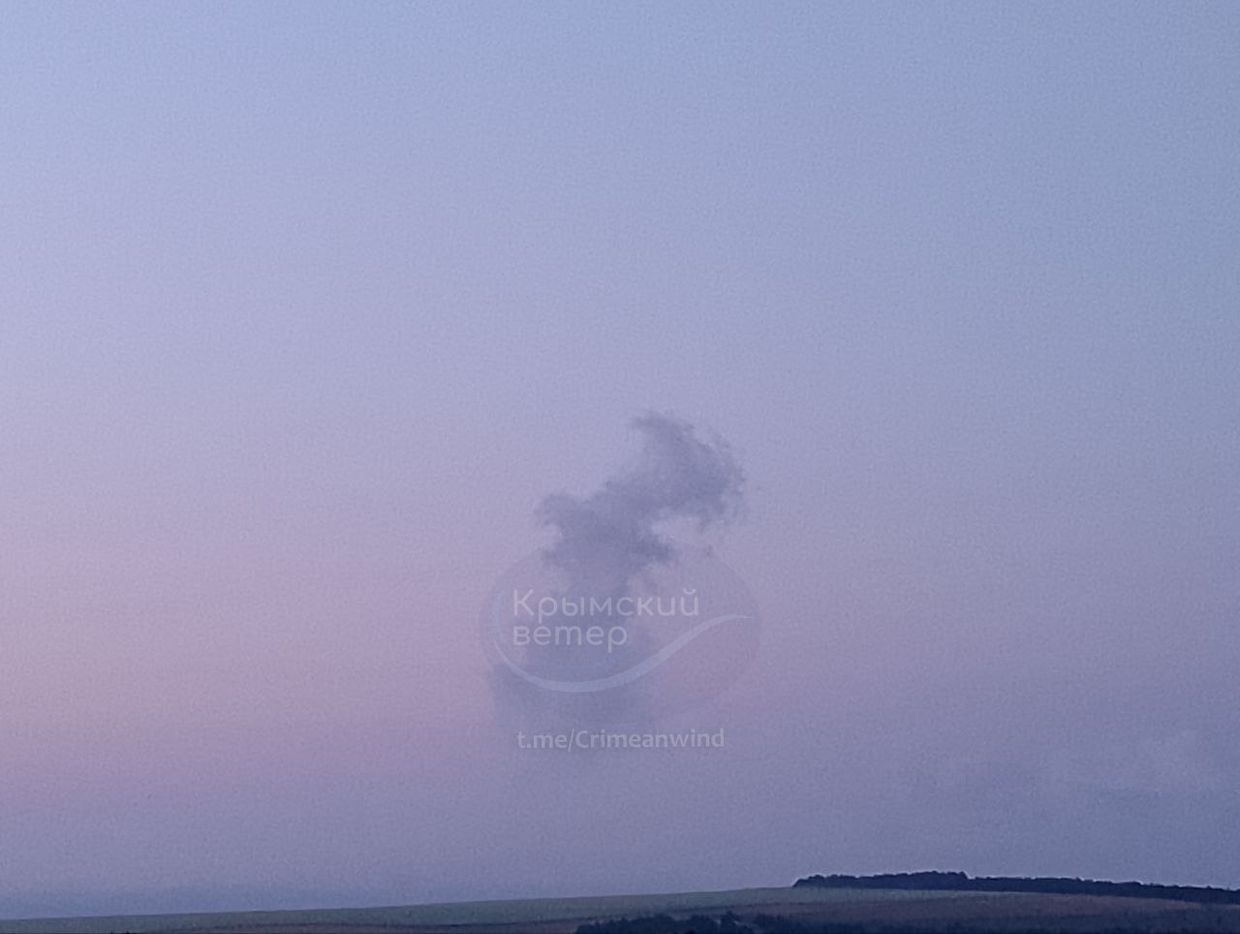Third Child in Sailing Camp Dies After Barge Hit Boat Off Miami Beach

© WSVN-TV, via Associated Press


© WSVN-TV, via Associated Press


Europe has honored a Ukrainian hero who saved lives under Russian fire. Combat medic Volodymyr Ryzhenko, call sign “Druh Sprite”, from the 12th Special Forces Brigade Azov, has been named “Best European Medic of the Year” in the Military Medicine category, according to Ukraine’s National Guard.
Ryzhenko received his award during the Combat Medical Care Conference 2025, Europe’s largest military medical summit, held in Germany with over 1,400 experts from 44 countries. The event was co-hosted by the German Bundeswehr.
In winter 2025, Druh Sprite made headlines after he saved a wounded comrade under enemy fire by performing an emergency blood transfusion using donor blood delivered by drone.
“It was a matter of minutes. Without that blood from the sky, he wouldn’t have made it,” his unit reported.
The act has become a landmark in the evolution of combat medical care.
A three-member Azov medical team represented Ukraine at the conference, sharing first-hand battlefield experience.
Lt. Serhii Rotchuk (“Druh Jedi”) presented innovations in medical logistics,
Olha Tagirova (“Krava”) discussed treating wounded soldiers beyond the golden hour and the systematic training of personnel.
Alongside the award, Ryzhenko received a ceremonial sword, a symbol of bravery, dignity, and strength. The honor highlights not only his personal heroism but also the excellence of Ukrainian military medicine, which continues to save lives on the front lines every day.
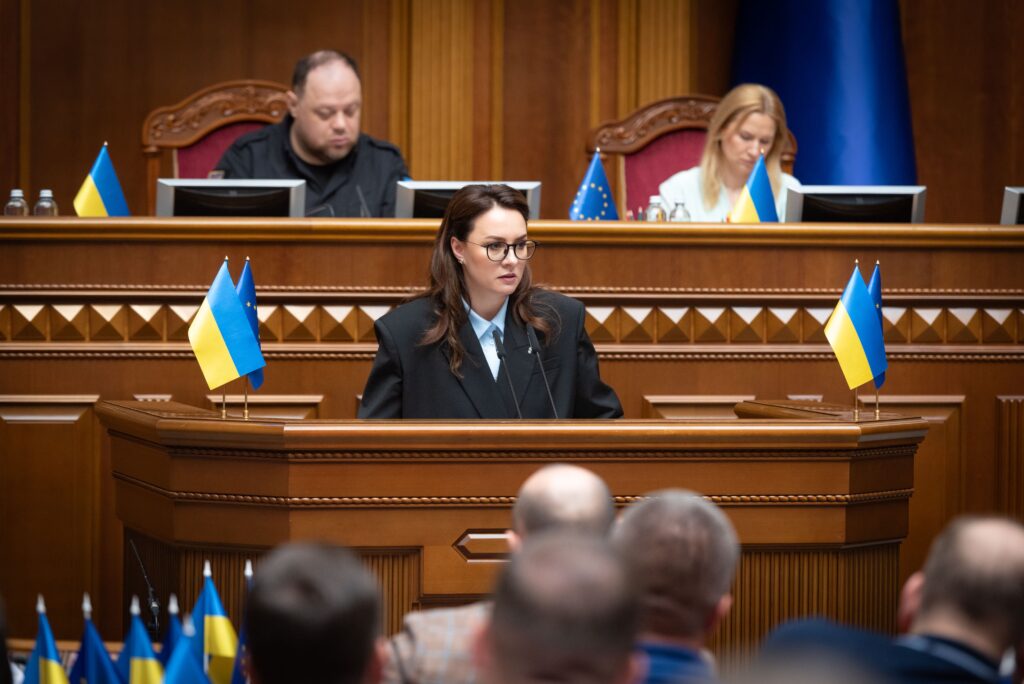

The Ukrainian government takes an unusual step amid EU pressure. Facing the threat of losing billions in aid, Ukrainian Prime Minister Yuliia Svyrydenko has announced that Oleksandr Tsyvinsky, the selected candidate for Director of the Bureau of Economic Security (BEB), has agreed he will undergo a polygraph test.
The Ukrainian prime minister says she has held a direct meeting with Tsyvinsky on 1 August, during which they agreed he would take a polygraph test.
“We agreed with Oleksandr on how to remove all doubts in a civilized manner and arranged for him to take a polygraph test. This guarantees that the situation is free of manipulation and allows us to move forward,” Svyrydenko states.
She adds that the selection commission has already made its decision and that the government has received the results from additional background checks.
Tsyvinsky is a National Anti-Corruption Bureau (NABU) detective who won the BEB director position in June 2025. The competition involved international experts. Tsyvinsky leads one of NABU’s elite detective units. His appointment was to symbolize the restoration of trust in anti-corruption bodies.
However, on 7 July, the Ukrainian government refused to approve him, citing “security concerns” as assessed by the Security Service. In response, Tsyvinsky stated that the government’s decision “does not comply with the law.”
The prime minister emphasizes the shared interest in making the Bureau of Economic Security an effective institution trusted by both business and the public. She expresses hope that the Ukrainian government will reach a final decision next week.
“This will be a major contribution to rebuilding trust between the state and the business community,” Svyrydenko adds.
The government’s refusal to approve the competition winner marked another escalation in tense relations between Ukrainian authorities and NABU, which sharply intensified this summer.
On 22 July, President Volodymyr Zelenskyy signed the controversial bill, which curtails the NABU’s independence, as well as the liberty of the Specialized Anti-Corruption Prosecutor’s Office (SAPO), by requiring their key decisions to be coordinated with the Prosecutor General’s Office.
The law led to mass civil society protests and criticism from international partners as it contradicts Ukraine’s commitments to the EU and the US on anti-corruption reforms.
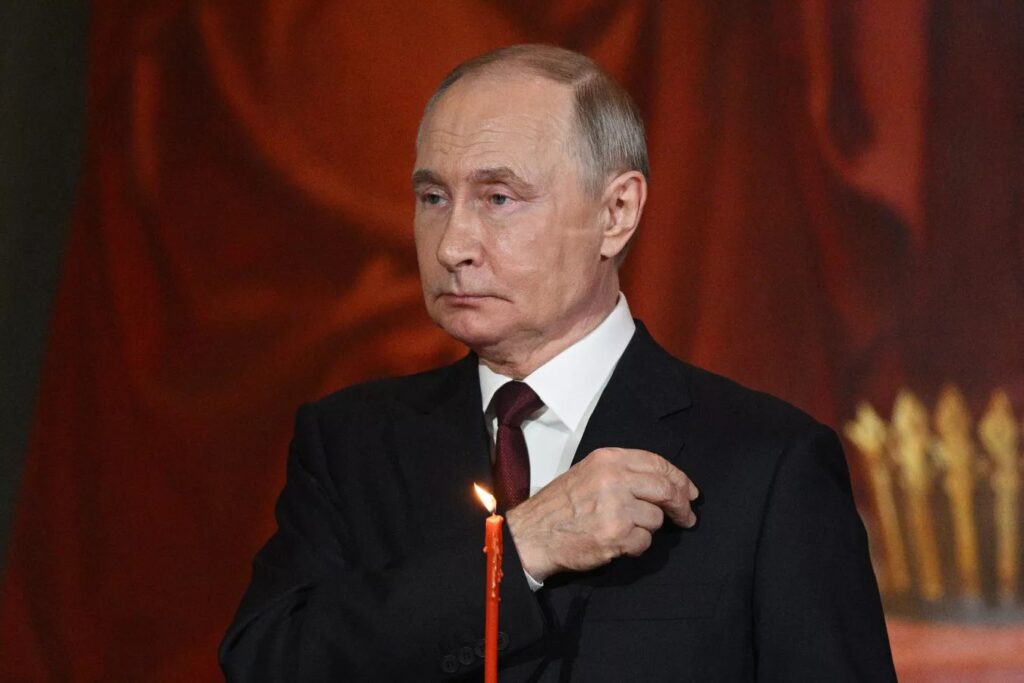

Russian ruler Vladimir Putin has cynically commented on the war in Ukraine for the first time since US President Donald Trump issued his 10-day ultimatum on Russia. Last week, the American president gave Russia ten days to reach a peaceful settlement, threatening massive sanctions if this does not happen by 8 August, UNIAN reports.
During a meeting with the self-proclaimed president of Belarus, Alexander Lukashenko, Putin spoke positively about the negotiations in Turkiye and the prisoner exchanges, stating that Moscow is “ready to wait” if Kyiv is not prepared for talks.
At the same time, he said the Ukrainian political regime “is not based on the Constitution” and supports prolonged negotiations “without any time limits.”
In June, President Volodymyr Zelenskyy revealed that the Kremlin used prisoner exchanges as a tool to delay the negotiation process with Ukraine and dodge sanctions. While sending back Ukrainian prisoners of war, beaten and tortured in captivity, Russia does not agree to any other proposition to end the war.
Ukrainian soldier dies weeks after release from Russian captivity with his organs failing due to torture
Putin confirmed that Russia’s conditions for ending the war, announced back in summer 2024, remain unchanged.
Last year, he insisted on the withdrawal of Ukrainian troops from the occupied territories of Donetsk, Luhansk, Kherson, and Zaporizhzhia. Moscow has illegally incorporated these Ukrainian regions into its Constitution. Additionally, Russia demands that Ukraine renounce NATO membership, enshrine a non-nuclear status, and lift sanctions.
In talks with propagandists, Putin boasted about the production of the first serial ballistic missile Oreshnik and the Russian army’s offensive along the entire front line.
In 2024, Russia used a Multiple Independently Targetable Reentry Vehicle (MIRV) missile armed with conventional warheads to strike Dnipro. While MIRV technology has long been associated with nuclear delivery systems, this marked its first use in combat. The scale of the destruction remains unknown. According to Ukraine’s Air Force, Russia targeted industrial facilities and critical infrastructure in Dnipro.
Meanwhile, Lukashenko urged Zelenskyy “to simply sit down at the negotiating table” with Putin and emphasized that Minsk and Moscow will not kneel because they decisively defend their interests.


Dozens of parliamentarians from various countries staged a coordinated walkout during a speech by Russian Federation Council Chairwoman Valentina Matvienko at the World Conference of Speakers of Parliaments in Switzerland on 30 July.
Why the mass walkout? According to Ukrainian Parliament Vice-Speaker Olena Kondratiuk, it sent a clear message about Russian aggression.
“This is a walkout against the aggressor,” Kondratiuk said, describing tears in her eyes as she watched international colleagues leave.
The half-empty hall, she argued, showed exactly how democratic parliaments view Russia.
Czech Parliament’s Chamber of Deputies Speaker Marketa Pekarova Adamova also made her reasoning explicit. She refused to be “a prop in the lies on which the criminal Kremlin regime is based.”
“She herself bears personal responsibility for the crime of aggression and all subsequent Russian atrocities after publicly approving the use of armed forces on Ukrainian territory,” Adamova wrote.
Better to spend time with colleagues “who support Ukraine in its fight for freedom and democracy,” she added.
But why was Matvienko allowed into Geneva at all? Ukraine’s Foreign Ministry had called her conference participation “disgraceful.” Spokesman Heorhii Tykhyi put it bluntly: her place should be “in the dock, not at international conferences.”
Here’s the problem: Matvienko appears on EU sanctions lists related to Russia’s invasion. So does much of the Russian delegation. Switzerland honors these sanctions—with one exception. The country permits sanctioned individuals to enter when visiting international organizations based there.
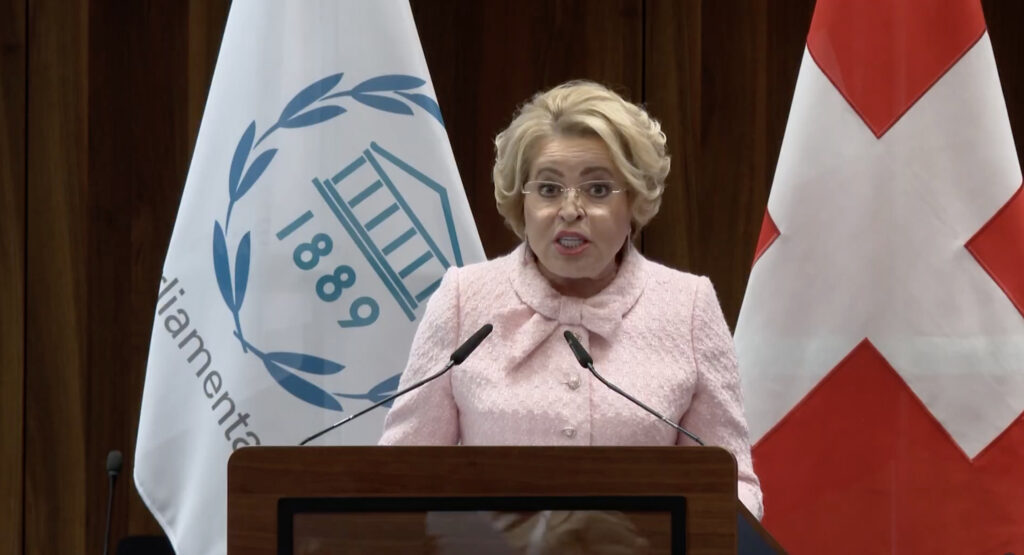
What had Matvienko been saying? Two days earlier, she invited international parliamentarians to visit occupied Ukrainian territories and see the “Alley of Angels.” This is a memorial in Donetsk that Russian forces erected allegedly commemorating children killed by Ukrainian forces in the conflict, which is considered a Russian propaganda narrative as there is no independent proof and convincing evidence.
Earlier, Ukraine’s Security Service charged Matvienko in absentia in 2024 under multiple articles. According to investigators, she signed parliamentary decisions authorizing Russian troop deployment in Ukraine. She also approved ratification agreements for annexing occupied Ukrainian territories. She faces additional charges including incitement to wage aggressive war, for which Ukraine plans to prosecute her at a Special Tribunal.
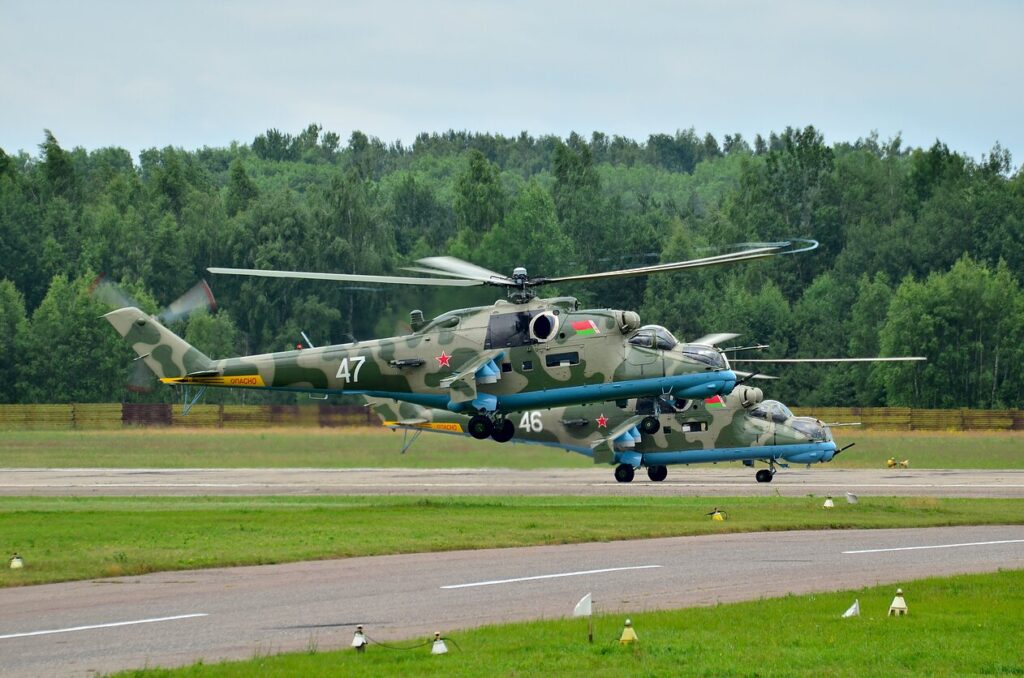

Moscow is hunting for missile and drone components. According to Ukraine’s Foreign Intelligence Service, Belarus is rapidly expanding its military production to compensate for a shortage of components in Russia’s defense industry.
Belarus is effectively fully absorbed by Russia under the current leader, Alexander Lukashenko. The Kremlin has deployed permanent military bases in Belarus, including aviation forces. Minsk assisted in launching the war against Ukraine by allowing the use of its territory and also forcibly relocated civilians, including children, for re-education.
“Moscow is looking for alternative sources of components, particularly for drones and missile systems, amid Western sanctions and logistical barriers. The Belarusian government is accelerating the launch of facilities tied to UAVs, dual-use electronics, and targeting systems,” the agency reports.
Belarus’s innovation strategy previously focused on civilian sectors, such as agricultural machinery, pharmaceuticals, and food production. Now, military development is the priority.
“Most army-related facilities are expected to be constructed and operational within one to one and a half years,” the Ukrainian Intelligence notes.
For example, a plant producing composite drone components was built based on the Multipurpose UAV Technology Center. The project, frozen in 2020, was revived after the full-scale war began. By late 2024, the factory was built and equipped, and production began in February 2025.
The Zenit-BelOMO plant is launching production of targeting systems and auto components for the CIS market. Production lines are set to open in August, with the plant expected to reach full capacity by year’s end.
Meanwhile, the Integral plant is expanding its production of dual-use microchips, which can be employed in guidance systems for Russia’s Kh-101 cruise missiles.
“A new workshop is expected to be operational in December, and full-scale production is planned for 2026,” the Ukrainian Intelligence adds.
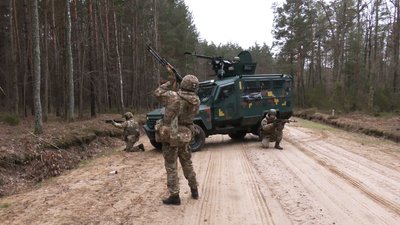

Belarusian KGB agent detained in Volyn for spying on Ukrainian military. Counterintelligence of the Security Service of Ukraine (SBU) has uncovered an attempt by Belarusian intelligence services to obtain reconnaissance data on the defense of Ukraine’s northern border.
Belarusian espionage activity is evidence of Lukashenko’s regime actively participating in hybrid aggression against Ukraine. Belarus shares a border with Poland, Lithuania, and Latvia — all EU and NATO members. If Minsk is recruiting its agents in Ukraine, there are no guarantees that the same networks are not operating in Eastern Europe, monitoring the logistics of Western weapons, political structures, and activists.
Counterintelligence of the SBU detained a local resident in Volyn who was transmitting information to Belarusian intelligence services. According to the agency, the 24-year-old unemployed man was looking for easy money in Telegram channels and made contact with representatives of the Belarusian KGB.
He agreed to spy on checkpoints, defense fortifications, and military trains in northern Ukraine.
“To collect intelligence, the agent scouted local areas, recorded the Defense Forces’ fortifications, and marked their geolocations on Google Maps,” the SBU reports.
During a search, a phone was seized from the detainee containing an anonymous messenger chat used to communicate with his KGB handler. The identity of the Belarusian intelligence officer has already been established.
The agent has been officially charged under the Criminal Code of Ukraine, which is high treason during martial law. He faces life imprisonment with confiscation of property.


Why would Ukraine’s foreign ministry call an international conference attendance “disgraceful”?
The answer sits in a Geneva conference hall where Valentina Matvienko, head of Russia’s Federation Council, addressed fellow parliamentarians this week at the Inter-Parliamentary Union conference. Ukrainian Foreign Ministry spokesman Heorhii Tykhyi didn’t mince words: her place is “in the dock, not at international conferences.”
From the podium in Switzerland, Matvienko invited foreign colleagues to visit Russian-occupied Ukrainian territory.
“Please come to Donbas, look at the ‘Alley of Angels,’ which is dedicated to the memory of these murdered children,” she told the assembly an old Russian propaganda narrative. “Russia was forced to intervene to stop this bloodshed.”
This narrative presents Russia as a rescuer and frames its aggression as a “humanitarian mission” while providing highly questionable or fabricated stories.
How did a sanctioned Russian official even reach Switzerland? The country joined EU sanctions targeting Matvienko and other Russian officials. But Swiss policy includes a loophole—sanctioned individuals can enter when participating in international organizations headquartered there.
Matvienko didn’t travel alone. Her delegation included State Duma Deputy Chairman Pyotr Tolstoy and “LDNR” leader Leonid Slutsky—multiple members appear on Western sanctions lists connected to Ukraine’s invasion, Radio Free Europe reported.
A Russian official who spreads propaganda about Ukraine was allowed to present at an international conference in Switzerland this week.
— Euromaidan Press (@EuromaidanPress) July 28, 2025
Despite being on EU sanctions lists, Valentina Matvienko reached Geneva through a loophole allowing sanctioned individuals to participate in… https://t.co/lXkMHu8RsL
Ukraine’s foreign minister went further than diplomatic protests. He urged conference participants with “self-respect” to avoid shaking hands with Matvienko, calling her hands “stained with Ukrainian blood.” Ukraine plans to pursue her prosecution at a Special Tribunal for Russian aggression.
“The Genocidal Matvienko bears personal responsibility for the crime of aggression and all subsequent atrocities after publicly endorsing the use of Russian armed forces on Ukrainian territory,” he wrote.
Ukraine and the Council of Europe established a Special Tribunal for the Crime of Aggression against Ukraine on 25 June 2025, to prosecute Russian leaders for the invasion. The tribunal fills a gap left by the International Criminal Court, which lacks jurisdiction over aggression crimes in this case because Russia doesn’t recognize the relevant ICC provisions.
According to investigation findings reported by Ukrainian security services, Matvienko signed parliamentary decisions authorizing Russian military deployment in Ukraine before the full-scale invasion began.
She also reportedly approved ratification agreements for annexing occupied portions of Ukrainian regions to Russia. The Security Service of Ukraine has filed charges against her in absentia under multiple articles, including incitement to wage aggressive war.
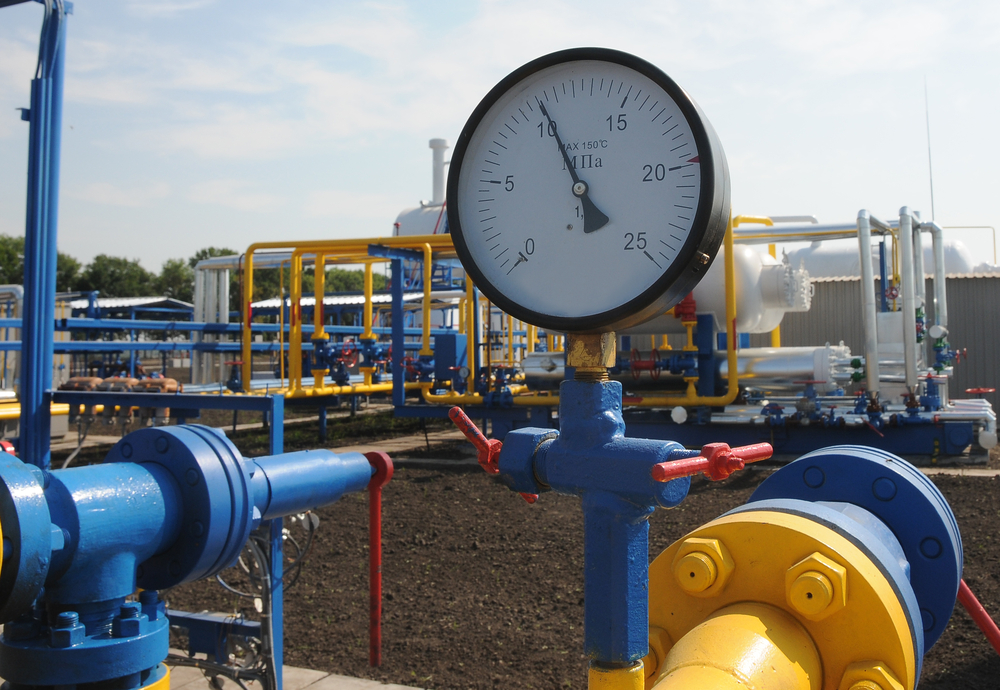

Amid Russian missile strikes and a gas war, Ukraine has taken its first step toward strategic energy retaliation. Ukraine’s national energy company Naftogaz has announced it has signed its first agreement for the supply of Azerbaijani gas with the state-owned company SOCAR.
Ukrainian-Azerbaijani relations significantly improved in 2024–2025 following a series of aggressive actions by Russia. In December 2024, Russian forces shot down an Azerbaijani aircraft near Grozny, killing 38 passengers. Shortly afterward, Russia launched raids on its territory, resulting in the deaths of two Azerbaijani citizens. In response, Baku began openly strengthening ties with Kyiv. During the Soviet era, Armenia, Azerbaijan, and Georgia were under Moscow’s control and subjected to centralized governance.
The first gas test delivery was carried out through the Trans-Balkan corridor, which runs from the Bulgarian—Romanian—Ukrainian border.
“This is a small-volume but strategically important step that paves the way for long-term cooperation. It’s also another example of diversifying supply sources and strengthening Ukraine’s energy security,” says Serhiy Koretskyi, CEO of Naftogaz.
Due to Russian strikes on gas infrastructure, Ukraine is forced this year to import a significant volume of gas from Europe. According to former Energy Minister Herman Halushchenko, at least 4.6 billion cubic meters of imported gas must be injected into underground storage facilities. As of June, 2.9 billion cubic meters had already been contracted.
A new route through Greece, Bulgaria, Romania, and Moldova was launched in May, opening another window of opportunity for Ukraine.
SOCAR operates actively in Türkiye, Romania, Georgia, Switzerland, and Ukraine, where its subsidiary SOCAR Energy Ukraine runs one of the country’s largest premium gas station networks.
The company is involved in strategic projects supplying Caspian gas to Europe, particularly via the TANAP and TAP pipelines.
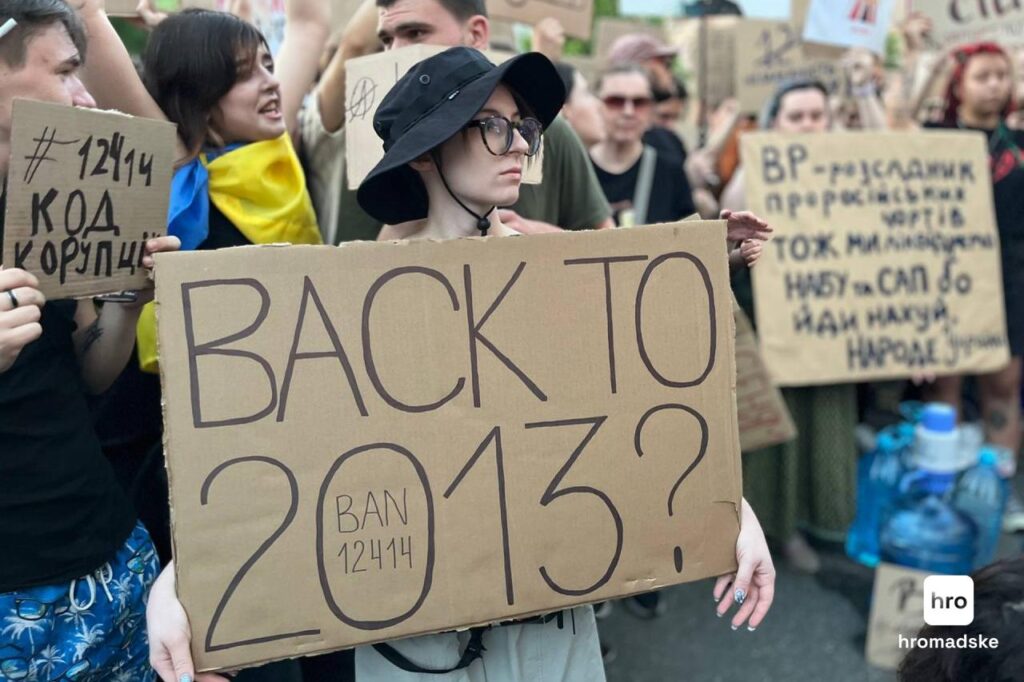

After a law limiting the independence of anti-corruption bodies came into effect, one of them, the National Anti-Corruption Bureau or NABU, announced the completion of investigations of long-term cases. Four high-profile criminal cases were closed in one week by the agency, Glavkom reports.
President Volodymyr Zelenskyy signed the law, curtailing the independence of NABU and the Specialized Anti-Corruption Prosecutor’s Office (SAPO) on 22 July. It requires key decisions by these institutions to be coordinated with the Prosecutor General’s Office.
This surge in anti-corruption activity coincided with a public statement by the new Prosecutor General, Ruslan Kravchenko, about his intention to intervene in certain cases that NABU had been investigating for years.
“In such cases, I will raise questions and possibly create a joint investigative group with other employees,” said Kravchenko.
For comparison: in January 2025, NABU did not report about the number of cases brought to a conclusion. According to the Center for Countering Corruption, the agency completed one in May and three in March, Texty reported.
Finally, NABU completed the investigation of one of the largest cases involving the embezzlement of over $225 million from PrivatBank before its nationalization. According to the investigation, the money was funneled through a scheme of fictitious loans registered to controlled entities.
The case involves six suspects, including oligarch Ihor Kolomoisky, who has been in custody since 2023.
Pavlo Kyrylenko, head of the Antimonopoly Committee, is charged with failing to declare significant property, including several apartments in Kyiv and Uzhhorod, a residential house of over 220 sq.m. near Kyiv, two land plots, two garage boxes, six parking spaces, three non-residential premises totaling over 190 sq.m., and a BMW X3 car. Additionally, a separate case regarding Kyrylenko’s alleged illegal enrichment amounting to over $1.75 million is under review and has already been transferred to the High Anti-Corruption Court.
Regional judges systematically issued fake rulings allowing men to avoid mobilization. The most common reason was the status of “sole parent.” According to the investigation, $3,500 was charged for such rulings. A total of 1,040 similar rulings were issued over the past year.
Another case was completed, and this time against an SBU officer who, according to the investigation, demanded $300,000 for destroying materials related to the illegal smuggling of men abroad. If refused, he threatened to initiate criminal prosecution under more serious charges.
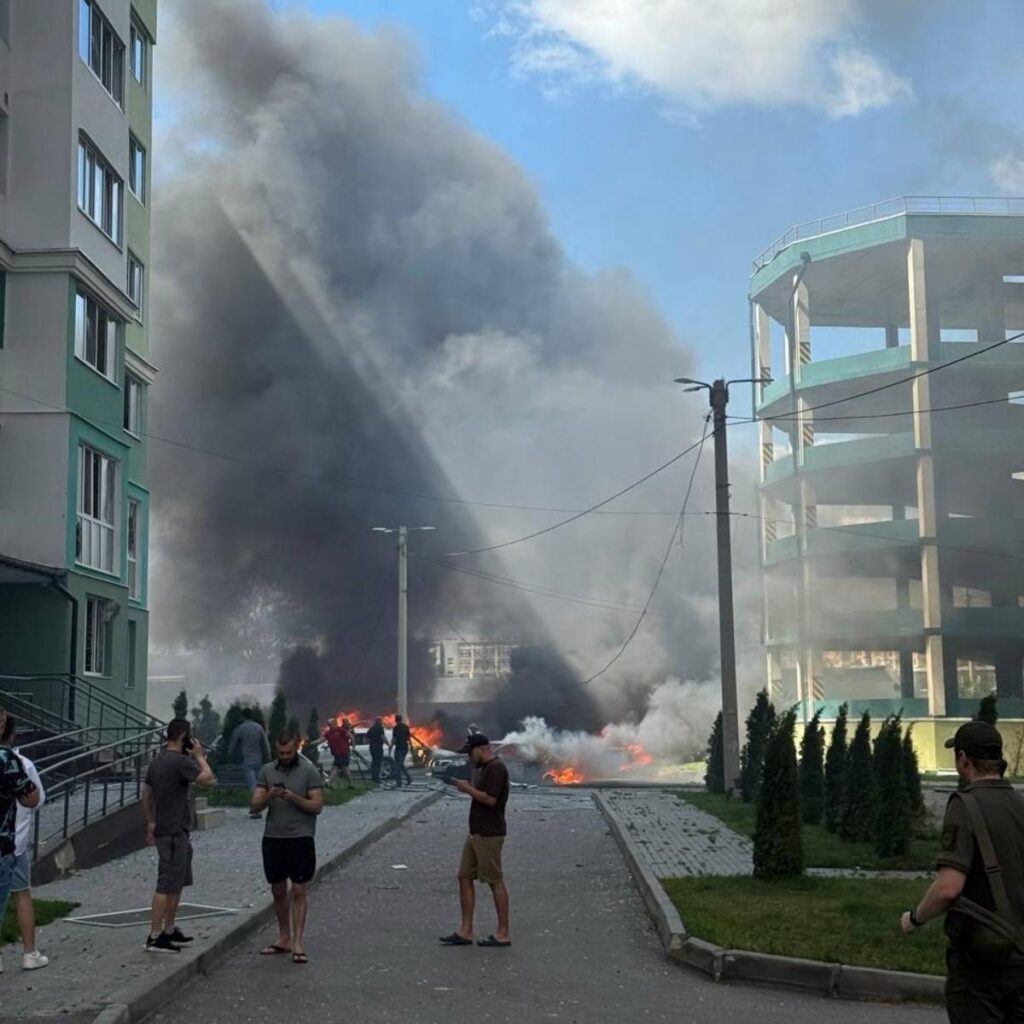

Russia tests new modified bomb on Kharkiv — children, an infant, and a pregnant woman among the wounded. On 24 July, Russian forces used a new type of aerial bomb, the UMPB-5, in an attack on the central part of the city in the first known use of this weapon.
Two airstrikes were launched from over 100 kilometers away, targeting residential districts and causing widespread destruction.
According to the Kharkiv Regional Prosecutor’s Office, 41 people were injured in the attack, including six children. The youngest victim is just 28 days old. A pregnant woman was also among the wounded.
The strikes damaged 20 residential buildings, including 17 apartment blocks in the Shevchenkivskyi and Kholodnohirskyi districts. The blast wave shattered over 600 windows, forming a crater in the street. Seven cars were destroyed by fire, and 18 more were damaged. One industrial facility caught fire, resulting in a large-scale blaze.
Regional prosecutor’s representative Spartak Borysenko confirmed that Russia used the new UMPB-5 bomb, which carries a 250-kg warhead.
“Russia is using Kharkiv as a testing ground. Today it’s the UMPB-5, before it was the D-30… These modified bombs cause greater destruction and lead to more civilian injuries,” he explained.
Kharkiv Mayor Ihor Terekhov said that people were on the streets during the strike. Fortunately, no fatalities were reported.
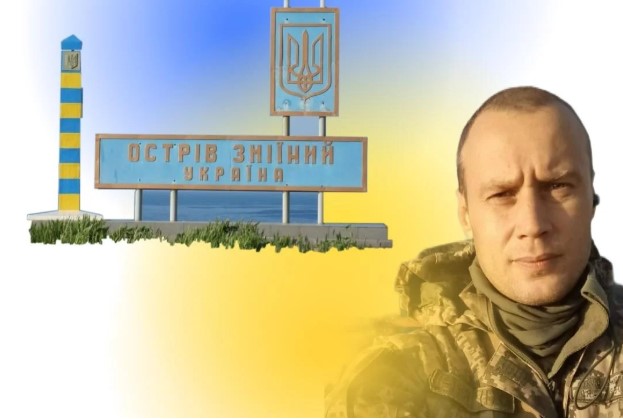

During the latest prisoner swap with Russia, Ukraine brought back the last defender of Zmiinyi or Zmiinyi (Snake) Island. Vitalii Hyrenko returned home after spending more than three years in Russian captivity, the Facebook community of the Defenders of Zmiinyi Island reports.
“The long-awaited exchange, three years and five months in captivity, for our last defender of Zmiinyi Island has taken place! Border guard of the island of Achilles, Vitalii Hyrenko, is home!!! Free, unbroken in spirit and body, Vitalii is finally back on his native soil,” the post reads.
In a February update, the community shared that Hyrenko’s small son, Dmytro, only knew his father from photos.
“When Vitalii was taken captive, his wife Aliona was seven months pregnant,” it wrote.
The Coordination Headquarters for the Treatment of Prisoners of War also confirmed that Hyrenko, a soldier of the State Border Guard Service of Ukraine, had been released from captivity.
Following negotiations in Istanbul, the ninth round of prisoner exchanges with the Russian side took place on 24 July.
President Volodymyr Zelenskyy announced that severely wounded and critically ill defenders had returned home. According to him, more than 1,000 Ukrainian soldiers have been freed from Russian captivity across all phases of this exchange.
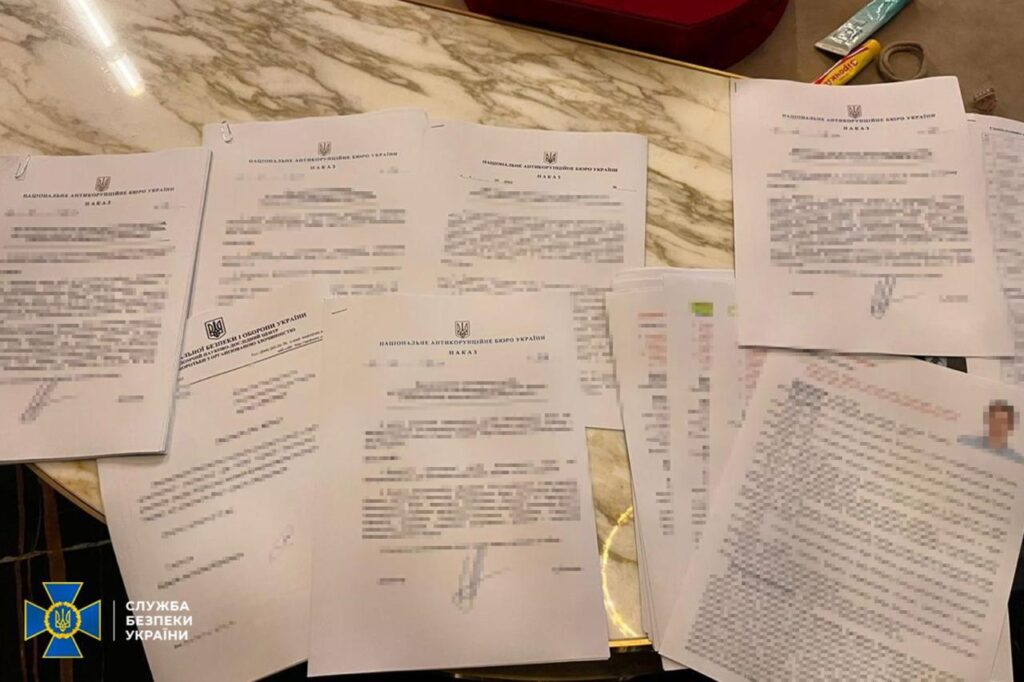

On 22 July, the Ukrainian Parliament passed bill No. 12414, which effectively destroys the independence of the National Anti-Corruption Bureau of Ukraine (NABU) and the Specialized Anti-Corruption Prosecutor’s Office (SAPO), says the Independent Anti-Corruption Commission (NAKO).
Under the new rules, key decisions of these bodies must be coordinated with the Prosecutor General’s Office, calling into question their impartiality.
The NAKO emphasizes that this decision will severely undermine trust in Ukraine on the international stage. The development of anti-corruption institutions, supported by civil society and international partners since 2015, was a key condition for Ukraine’s progress towards the EU and NATO.
The liquidation of NABU’s and SAPO’s independence threatens further international aid.
The law was adopted amid high-profile searches at NABU, where security forces uncovered an FSB agent working inside the bureau who passed information to Russia.
“Yesterday we saw SBU searches that showed NABU is not perfect, and that is true, but today these searches have been used by the authorities to dismantle an independent anti-corruption investigation,” says NAKO senior researcher Tetiana Nikolaienko.
Now the Prosecutor General becomes the de facto head of SAPO prosecutors, gains full access to NABU cases, has the right to transfer them to other bodies, decides jurisdiction disputes, and signs indictments against high-ranking officials. This destroys the possibility of conducting impartial investigations according to the law.
Meanwhile, the Anti-Corruption Action Center stresses that President Zelenskyy’s signature under this law will return the country to the times of former pro-Russian President Victor Yanukovych.
“Under these conditions, NABU, SAPO, and the High Anti-Corruption Court lose all meaning as Zelenskyy-installed Prosecutor General will stop investigations against all the president’s friends,” adds NAKO.
Accordingly, there is no point in electronic asset declarations, punishment for illegal enrichment, special confiscation, or other anti-corruption reforms.
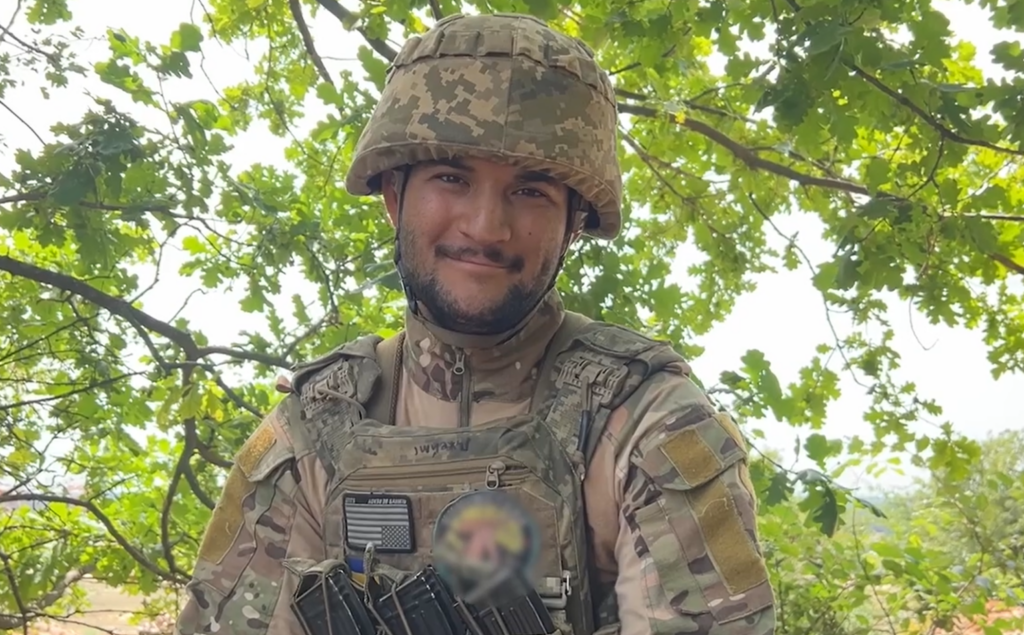

“I want my children to grow up in Ukraine”. James, an American volunteer known as “Sonechko” or Sun, has voluntarily joined the 154th Separate Mechanized Brigade of the Ukrainian Armed Forces.
He is a part of the International Legion of Ukraine, a military unit within the Ukrainian Ground Forces, composed of foreign volunteers. Formed in 2022, the legion has attracted thousands of foreign volunteers from over 50 countries, including the US, UK, and Canada, to fight against Russian aggression.
He has been living in Ukraine for a year now and plans to stay there.
“I want to help Ukraine as much as I can. That’s why I’m here. Maybe after the war, my children will grow up here,” James said in a comment shared by the brigade on social media.
His native language is Italian, and although he’s only just learning Ukrainian, James can already communicate freely with his fellow soldiers. He says the decision to become a fighter was thoughtful and deliberate.
“This is my life. I did everything I could to be here, and now I am. The people here are quite professional. It’s not bad at all,” he continued.
Earlier, Chief of Staff of the 2nd International Legion, Pavlo Slavyntskyi, explained that the distinguishing feature of foreign volunteers units is that all of them came to Ukraine of their own volition. No one recruited or persuaded them, Dzerkalo Tyznia reports.
Inside the units, there’s no pomp or patriotic slogans. Slavyntskyi stated that some of the figters want to earn money, while others — to boost their CVs, gain experience, learn military affairs, equipment, or tactics of warfare. Some want to fight for freedom and justice, and some simply want to kill Russians.
He said that Americans, Brits, Europeans are mostly men over 40, who came to finish the war they didn’t finish in Afghanistan or Iraq.
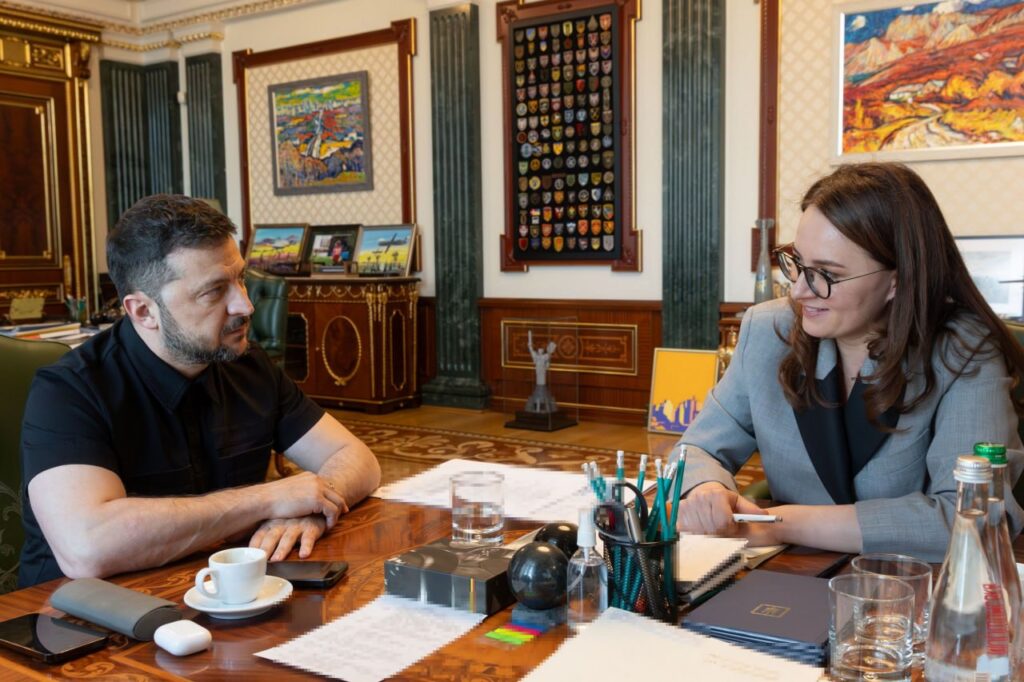

The US plans to invest in the production of Ukrainian drones. New Prime Minister Yuliia Svyrydenko has announced that Ukraine intends to sign a drone agreement with American partners, Reuters reports.
“We plan to sign a ‘drone deal’ with the United States. We are discussing investments in the expansion of production of Ukrainian drones by the US,” says Svyrydenko.
The official has clarified that the deal involves the purchase of a large batch of Ukrainian unmanned aerial vehicles.
Svyrydenko added that Ukrainian President Volodymyr Zelenskyy and US President Donald Trump made the political decision on the agreement earlier, and officials are now discussing its details.
Earlier, Euromaidan Press reported that both leaders were considering what’s being called a “mega deal.” Under the proposed agreement, Kyiv would sell its combat-hardened drone systems to Washington. In return, it would sell Ukraine a significant array of American weapons.
Zelenskyy emphasized that Ukraine is ready to share its knowledge gained from over three years of fighting against Russia’s full-scale invasion.


Zelenskyy installs ex-defense minister Umierov to run Security Council
The man once in charge of defense now oversees war tech, arms deals, and talks.
Ukrainian President Volodymyr Zelenskyy has appointed Rustem Umierov to lead the country’s National Security and Defense Council. He takes over the Security Council after stepping down as defense minister in a wartime Cabinet reshuffle, and will now oversee arms deals, tech coordination, and peace negotiations.
Zelenskyy signed the decree appointing Umierov secretary of the Security Council on 18 July, according to the presidential website. He replaces Oleksandr Lytvynenko, who had held the position since 26 March and is now reportedly being considered for an ambassadorial role in Serbia, Forbes reports, citing a government source speaking anonymously due to the sensitivity of the issue.
Yuliia Svyrydenko was appointed Prime Minister, with new ministers named across the government. Zelenskyy emphasized that the new cabinet must ensure Ukraine’s defenders have confidence in reliable supply, and that boosting internal economic potential would support that goal.
In a post on X, Umierov confirmed his appointment and outlined his top priorities in his new role.
“Coordination and control of the security and defense sector,” he wrote, adding that an audit will be conducted on the implementation of decisions made by the Headquarters of the Supreme Commander-in-Chief.
He pledged to coordinate all arms deliveries, joint production, and sensitive international defense partnerships.
“I remain in constant dialogue with our international partners,” he said, referring to critical yet discreet defense agreements.
Umierov also stated he would fully restore the operation of the Technological Command Post to accelerate front-line modernization and battlefield tech innovation. One of the primary missions now under his oversight is the synchronized execution of orders across all components of Ukraine’s defense system.
Umierov’s responsibilities also include overseeing the negotiation track.
“Ukraine consistently advocates for a just peace — and we are working to achieve it in close coordination with our allies,” he wrote.
RFE/RL reports that Zelenskyy met with Umierov on 18 July to discuss the new leadership tasks. Among the key priorities mentioned by the president was “more dynamics” in implementing the agreements with Russia reached during the second summit in Istanbul.
Zelenskyy also tasked Umierov with continuing weapons coordination with Ukraine’s partners, fully implementing all supply agreements, and advancing new projects for joint arms production and defense manufacturing facilities on partner territory.
According to the president’s office, Umierov is expected to strengthen the format of the technological headquarters, enforce decisions delayed in execution, and ensure full compliance across the defense and security sectors.


Ukraine’s parliament has confirmed Yulia Svyrydenko as Prime Minister, with 262 lawmakers voting in favor on Thursday. At 39, she becomes the first woman to lead Ukraine’s government in 15 years—and only the second in the country’s history after Yulia Tymoshenko.
But while the face has changed, the power structure remains the same. With elections suspended under martial law and political life shaped by Russia’s full-scale invasion, Ukraine’s governance remains highly centralized. Svyrydenko’s appointment is seen as reinforcing the wartime system—where real decisions are made inside the Presidential Office, not by parliament or Cabinet.
Svyrydenko’s elevation underscores Ukraine’s current political reality: executive power concentrated in President Volodymyr Zelenskyy’s circle, limited institutional checks, and governance by loyal proxies.
She is viewed as a close ally of Presidential Chief of Staff Andriy Yermak, widely considered one of the most powerful figures in the country.
“We don’t have a proper functioning Cabinet of ministers. Instead, we have some quasi-Cabinet of ministers headed by Yermak, who controls access to the president’s agenda and to the president himself,” said anti-corruption activist Daria Kaleniuk in Politico earlier this year.
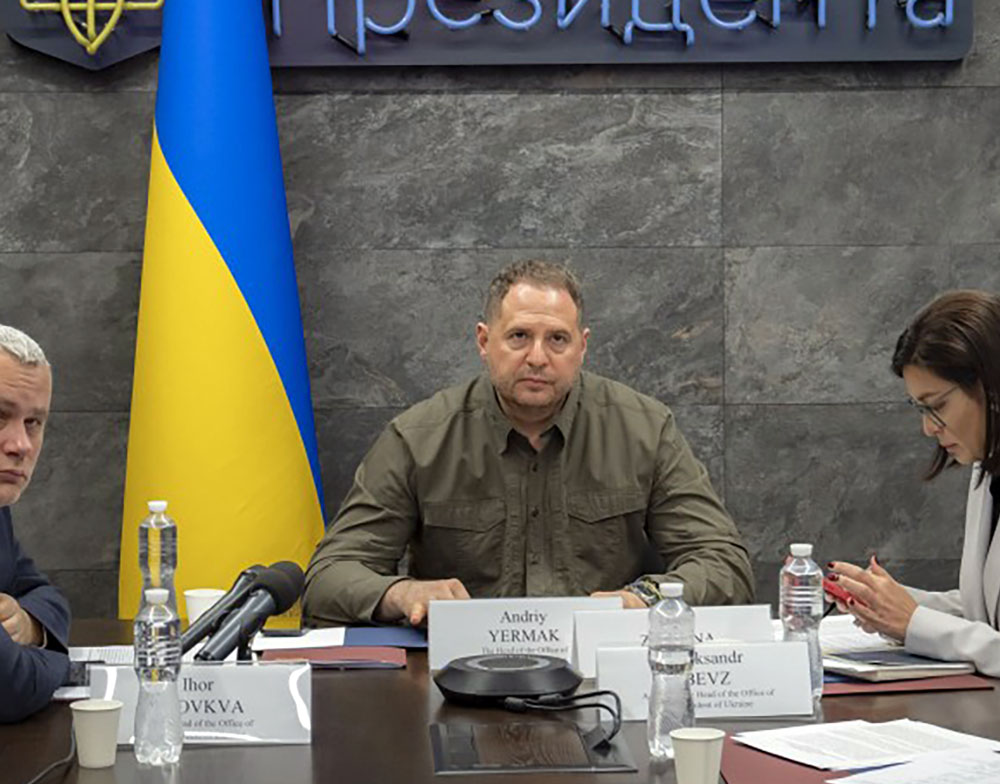
Svyrydenko was backed almost unanimously by Zelenskyy’s Servant of the People party and several independents. Opposition factions—including European Solidarity, Batkivshchyna, and Holos—voted against or abstained, warning that the reshuffle deepens executive control.
Former President Petro Poroshenko summed up their position:
“Replacing Shmyhal, who was ‘Yermak in a shirt,’ with Svyrydenko, who will be ‘Yermak in a skirt,’ changes nothing.”
A native of Chernihiv, Svyrydenko began in regional government before rising to key roles in Kyiv. She joined the Presidential Office in 2020, and later served as First Deputy Prime Minister and Minister of Economy.
She has led international negotiations on peace efforts, EU accession, and postwar recovery. In May 2025, she co-signed a US–Ukraine reconstruction agreement with US Treasury Secretary Scott Bessent, signaling her role in Ukraine’s international outreach.

Her appointment triggered scrutiny over her income. In 2024, she reported earning over 3 million UAH (about $75,000) in six months of teaching at the Kyiv School of Economics (KSE)—more than her government salary.
Ukraine’s anti-corruption agency launched a probe into a possible conflict of interest, since KSE received international grants overseen by her ministry.
Svyrydenko said she taught multiple courses under separate contracts and worked outside government hours.
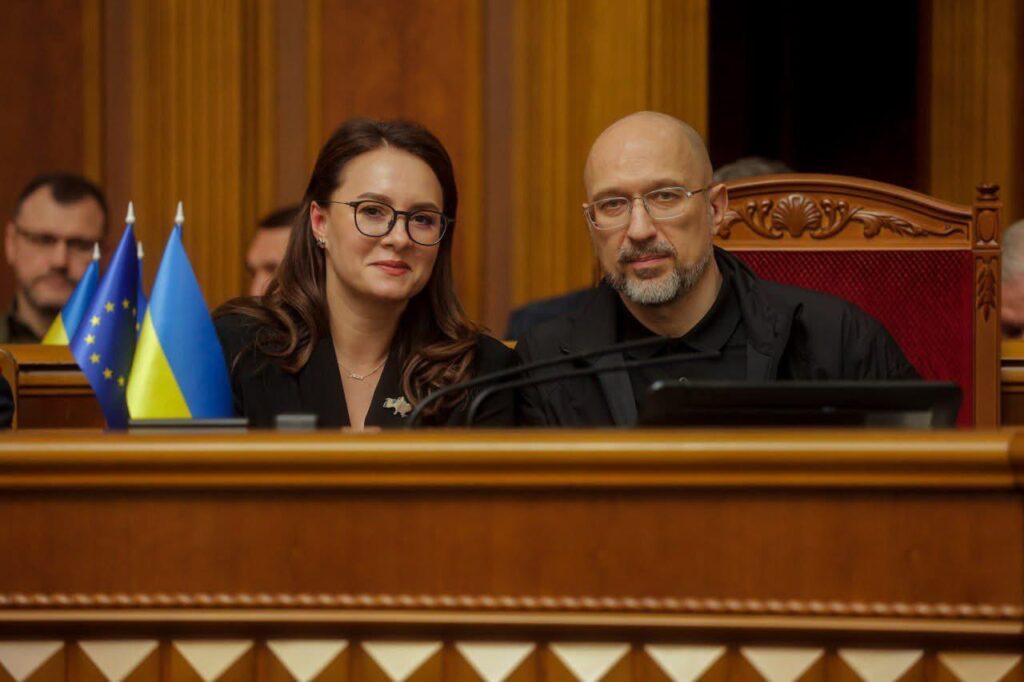
Svyrydenko replaces Denys Shmyhal, who resigned after over five years—the longest serving Ukrainian PM. Sources say he has now been nominated as Defence Minister—a major shift amid war.
At the same time, it’s unclear who will replace Oksana Markarova as Ukraine’s ambassador to the US Reports suggest current Defense Minister Rustem Umerov and presidential adviser Ihor Zhovkva are among the frontrunners; no official successor has yet been confirmed.
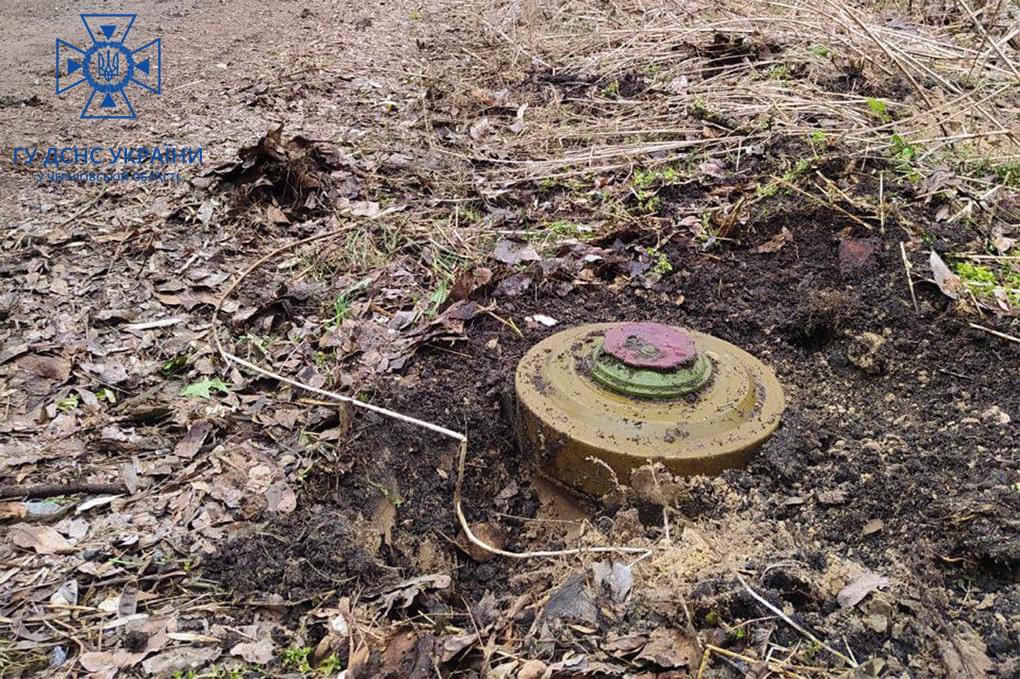

Ukraine aims to strengthen the defense of over 3,000 kilometers of its border with Russia and Belarus. Roman Kostenko, Secretary of the Parliament Committee on National Security, says that to achieve this, Kyiv is seeking a temporary suspension of the Ottawa Convention on the prohibition of anti-personnel mines, UkrInform reports.
Russia has never signed the Ottawa Convention, and has been laying mines across Ukrainian territory for over two years. Moscow troops have planted dense minefields along key routes where Ukrainian troops might advance. They have deployed mines via hand emplacement, rocket delivery, and have scattered them in rural and urban areas using drones.
The Ottawa Convention bans anti-personnel landmines worldwide. Since 1999, it has drawn 164 countries committed to destroying their mine stockpiles and clearing contaminated land, as mines can cause severe injuries and deaths among civilians. However, given that Ukraine has the right to protect itself, the government temporarily suspended its participation in the treaty.
“Considering the over 3,000 km border with Russia and Belarus, it is necessary to create a minefield at least several dozen kilometers wide, a preventive defense,” Kostenko explains.
Anti-personnel mines are effective, low-cost, and straightforward means of holding positions and creating denial zones for enemy infantry. They can demoralize the adversary and significantly complicate their movements and operations.
Kostenko emphasizes that fortifications without mine barriers are often ineffective.
“The enemy bypasses them. They are not always built in the right places. Fortifications must be guarded or be part of a combined system with mine barriers. One without the other does not work,” he says.
According to him, the use of anti-personnel mines will allow Ukraine to rapidly defend positions and significantly enhance the country’s defensive capabilities.
Six months ago, Lithuania and Finland also withdrew from the Ottawa Convention. Now, they are preparing to start the domestic production of anti-personnel landmines to supply their militaries and Kyiv. This decision reflects growing European concerns that Russia’s military ambitions may extend beyond Ukraine. China and the US never signed the document.


© Genya Savilov/Agence France-Presse — Getty Images


© Norbert Barczyk/PressFocus, via MB Media, via Getty Images
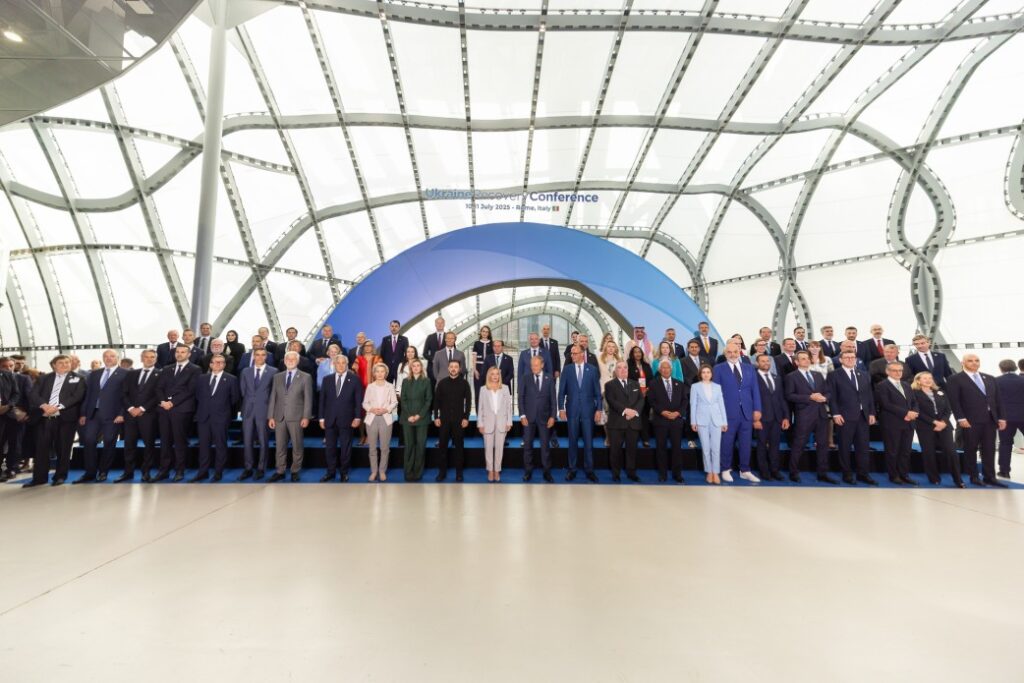

Kyiv has secured record-breaking aid at the latest international summit in Italy. During the fourth and largest Recovery Conference in Rome, Ukraine signed nearly 200 agreements and memorandums totaling €11 billion in support, says First Deputy Prime Minister and Minister of Economy Yuliia Svyrydenko.
“The Ukraine Recovery Conference 2025 in Rome was the most extensive yet, both in terms of participants and the quality of agreements. Over 6,000 participants from 70 countries, around 200 agreements signed, worth approximately €11 billion,” Svyrydenko states.
One key outcome was the launch of the largest European investment fund for Ukraine’s reconstruction, with four countries and major European development banks pledging support.
Under the Ukraine Investment Framework, a new aid package worth over €2 billion was announced. The Netherlands committed an additional €500 million over 10 years, while Switzerland pledged close to €5 billion in assistance.
Defense industry cooperation was also a central focus of the summit, with discussions on localizing production, creating joint ventures, and sharing technologies.
Among the major industrial initiatives:
Ukraine also focused on new employment programs for women, initiatives to support female entrepreneurship, and commitments to modernize labor legislation.
The conference took place amid an escalation of Russian attacks on Ukraine. Recently, Moscow began launching over 700 drones in a single night, targeting Ukrainian cities. Therefore, the focus of the conference extended beyond reconstruction and included defense.


Moscow is turning occupied Ukrainian cities into military bases for further aggression. In Mariupol, captured in 2022, Russian forces have established two military bases at the Azovstal steel plant, according to Petro Andriushchenko, head of the Center for the Study of Occupation, UNIAN reports.
Azovstal became a symbol of Ukraine’s resistance. As Mariupol’s final bastion, thousands of Ukrainian soldiers and civilians held out against relentless Russian attacks. The plant-turned-fortress endured blockade, airstrikes, artillery shelling, incendiary and phosphorus munitions. Its defense ended after three months following the order to stop resisting and exit the bunkers. About 2,000 Ukrainian troops surrendered and were taken captive by Russian forces.
According to Andriushchenko, one of the new bases was established in the last two months.
“This shows the level of militarization of Mariupol. Russian forces are relocating military assets mainly from Russia’s Rostov Oblast. Mariupol is no longer just a logistical crossroads. It is becoming a full-scale military logistics base,” he reveals.
Andriushchenko says that each base at Azovstal originated from simple military checkpoints set up on the site.
He explains the location was chosen because it is hidden from outside surveillance, with no nearby residential buildings and difficult access due to fencing, making it safer for Russian troops.
“Let’s not forget that these bunkers and underground shelters once served to protect civilians and our Mariupol garrison. Now the Russians are repurposing them and succeeding in it,” Andriushchenko adds.
The Russian authorities do not care about the fate of the occupied cities or their residents. What matters to them is using these territories as staging grounds for continuing the war against Ukraine.
Nearly all Ukrainian cities under occupation are being turned into military footholds, logistical hubs, and bases for further aggression. At the same time, Russians forcibly conscript Ukrainians, often coercing them into fighting against their own country.
For example, in Crimea, people are leaving due to constant air raid sirens, explosions, and the overwhelming military presence, unable to endure the unrelenting stress and danger.
Russians in Crimea pack up as relentless sound of air alerts and sight of tanks become their new reality
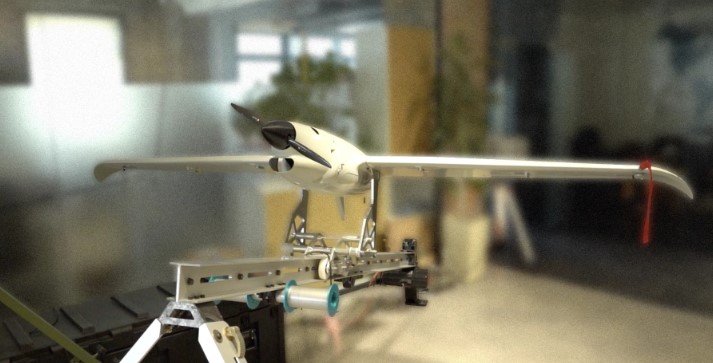

Skyeton, the Ukrainian developer of the well-known long-range Raybird unmanned aerial vehicles, which have logged over 350,000 hours of combat flights, has become a target of technological espionage by unscrupulous European companies, The Telegraph reports.
The Raybird vehicles are capable of carrying different types of payloads, such as reconnaissance cameras, radio frequency locators, and other equipment, and flying up to 2,500km on missions up to 28 hours long.
Roman Kniazhenko, the company’s CEO, reveals this. According to him, Western manufacturers visit “as guests” with alleged proposals for cooperation, but instead they are trying to steal production secrets.
“Then they do beautiful pitch books, beautiful presentations about how they’re operating in Ukraine. But actually they’ve done just a couple of flights in Lviv [the western city more than 1,000km from the front line],” he says.
Sometimes, Kniazhenko continues, he sees in their presentations, “literally my own words, without any change.”
He also emphasizes that while Ukrainian drones withstand real combat conditions, taking off even from puddles, European governments are spending billions on products that merely simulate combat effectiveness.
“The big problem, after that, is that billions of dollars go to the companies that still don’t have any idea what they’re doing,” says Kniazhenko.
Meanwhile, the Skyeton team, currently 500 people strong, works 24/7 developing drones for the toughest frontline conditions.
One example of its effectiveness was an operation in the Black Sea: Ukrainian special forces went missing at night, and a Raybird, with its lights on, was able to locate them in the dark waters.
“From one side, everything looks perfect for us. But it was like hell, a night of hell. When you are destroying something you feel good for a couple seconds. But when you know that you saved someone. Like, it’s a totally different feeling,” explains Kniazhenko.
He also urges the West to fund the production of Ukrainian drones on its territory instead of starting a startup from scratch. Every country has the technologies it is good at, he stresses, adding that for Ukraine, it is clear that it is drones.
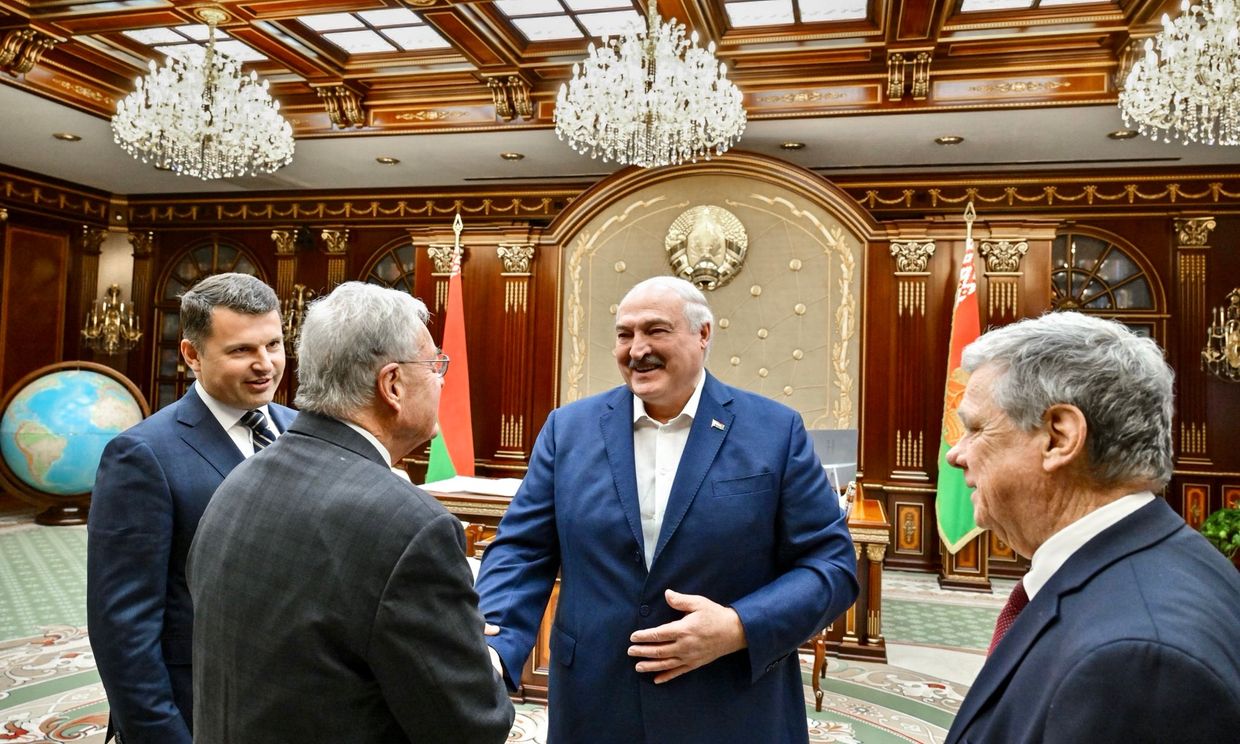

U.S. Special Envoy for Ukraine Keith Kellogg denied on July 1 that he agreed to "work on" halting Ukraine's drone attacks on Russia, contradicting Belarusian dictator Alexander Lukashenko's claim.
Speaking at a state event on Belarus's Independence Day, Lukashenko said he relayed Russian President Vladimir Putin's position to Kellogg during their June 21 meeting in Minsk.
According to Lukashenko, the Russian president is willing to consider a ceasefire in Ukraine if Ukrainian forces stop conducting drone strikes on Russian territory.
"I conveyed this position to the Americans," Lukashenko said on July 1. "We will work on it, said (the U.S. special envoy), in this direction."
Kellogg pushed back on the claim, writing on X that the quote was "taken out of context" and misrepresented the substance of their talks.
"At no point did I make comments related to Ukraine's prosecution of the war outside of a total ceasefire," he said. "In my conversation with Lukashenko, we discussed a full and unconditional ceasefire."
The June meeting between Kellogg and Lukashenko marked the highest-level U.S. visit to Belarus since former Secretary of State Mike Pompeo's 2020 trip. Belarusian state media widely portrayed Kellogg's visit as a sign of thawing relations.
Shortly after the talks, Belarus released opposition leader and political prisoner Siarhei Tsikhanouski, who had been jailed since the 2020 presidential election.
Lukashenko has ruled Belarus since 1994 and remains a key ally of the Kremlin. His regime has allowed Russian troops and equipment to use Belarusian territory to attack Ukraine since the start of the full-scale invasion in February 2022.
 The Kyiv IndependentMartin Fornusek
The Kyiv IndependentMartin Fornusek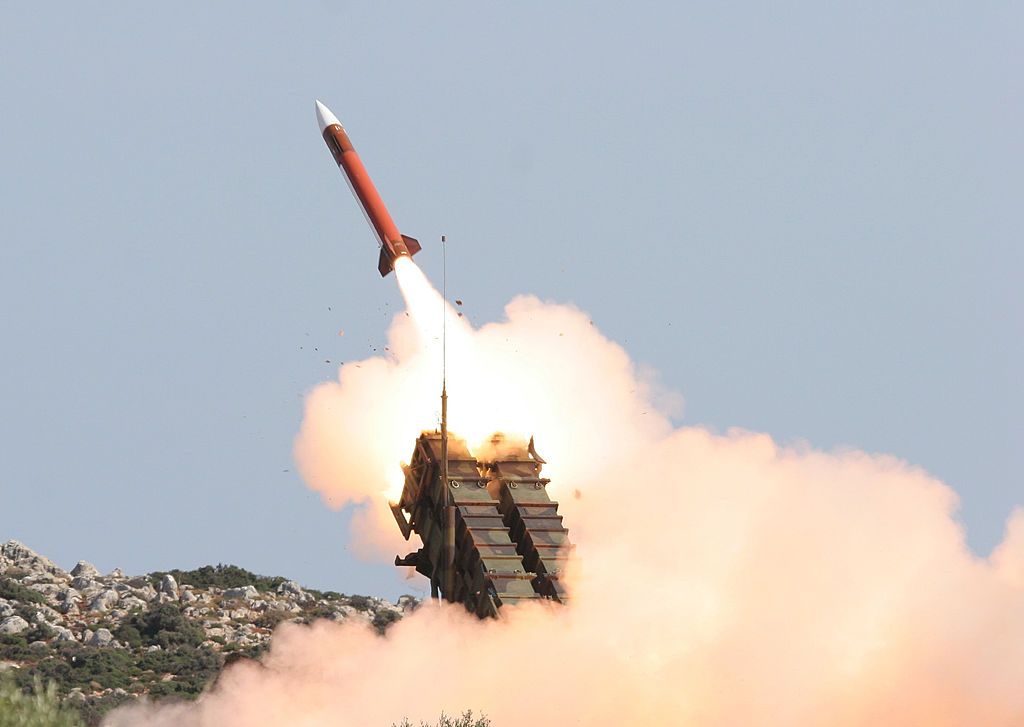
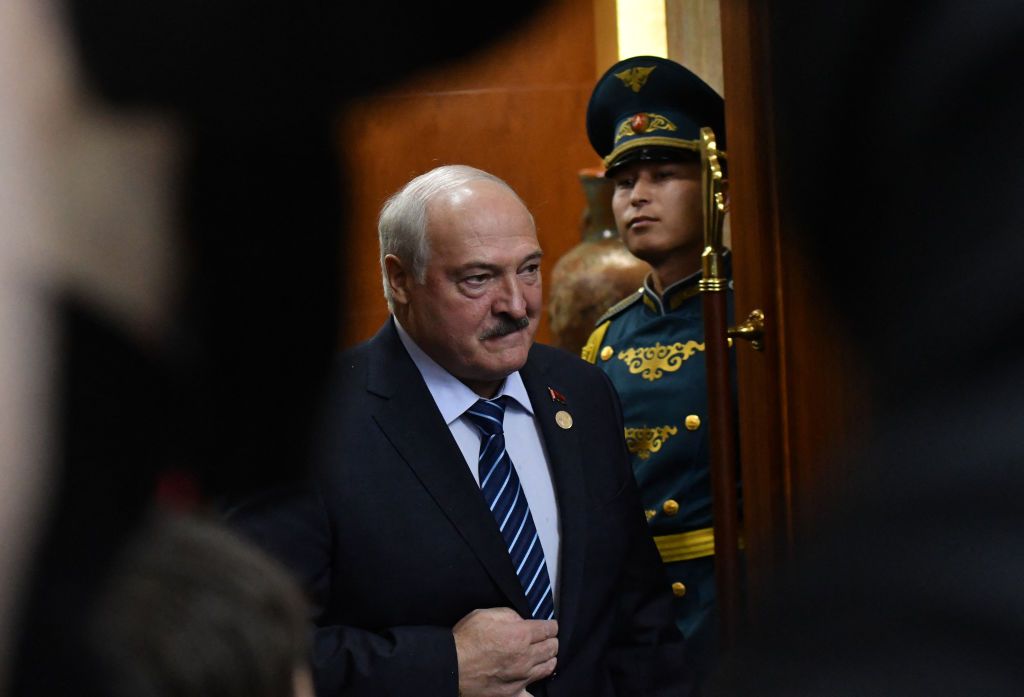

Belarusian dictator Alexander Lukashenko announced on July 1 that the Russian-made Oreshnik missile system will be deployed in Belarus by the end of 2025. Speaking at a ceremony marking Independence Day, Lukashenko said the decision was made in coordination with Russian President Vladimir Putin during a meeting in Volgograd.
"The first Oreshnik positions will be in Belarus. You’ve seen how Oreshnik works: the same missiles, the same strikes — but without nuclear warheads, without radioactive contamination of the land and air. This weapon will be stationed in Belarus by the end of the year," Lukashenko said.
Lukashenko, who has ruled since 1994 and claimed victory in a seventh consecutive presidential election in January, argued that hosting such weaponry would not make Belarus a target, adding that such concerns are being "imposed from outside." He claimed that countries possessing nuclear weapons have historically avoided military aggression and said the presence of such systems in Belarus is intended solely as a deterrent.
He also said he had delivered a warning to U.S. officials, stating that while nuclear weapons in Belarus are securely stored in accordance with international standards, any unauthorized incursion into Belarusian territory would trigger a "swift and forceful response."
The Belarusian leader emphasized that any use of the Oreshnik system would not involve nuclear warheads and that maintaining modern military capabilities is critical for national defense.
Russia first launched the experimental Oreshnik missile during a strike on the Ukrainian city of Dnipro on Nov. 21. Putin claimed the attack was in retaliation for Ukraine's use of U.S. and British long-range missiles against Russian territory.
Although little is publicly known about the missile, defense experts believe Oreshnik is not a wholly new development but likely an upgraded version of Russia’s RS-26 missile, also known as the Rubezh, which was first produced in 2011.
Lukashenko reportedly thanked Moscow for supporting the deployment of advanced weapons systems to Belarus and said the introduction of Oreshnik would serve as a tool for domestic stability. "I’m confident that even those of our supporters who don’t yet understand this will come to realize it — without a war. That’s why Oreshnik will be on Belarusian soil. To prevent uprisings," he said.
 The Kyiv IndependentThe Kyiv Independent news desk
The Kyiv IndependentThe Kyiv Independent news desk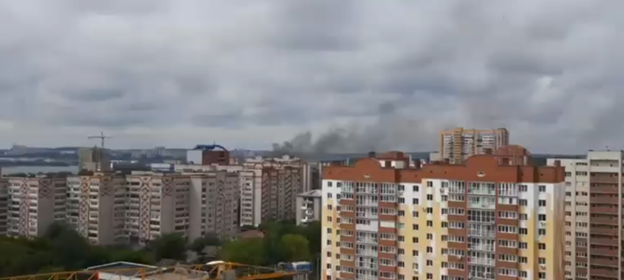
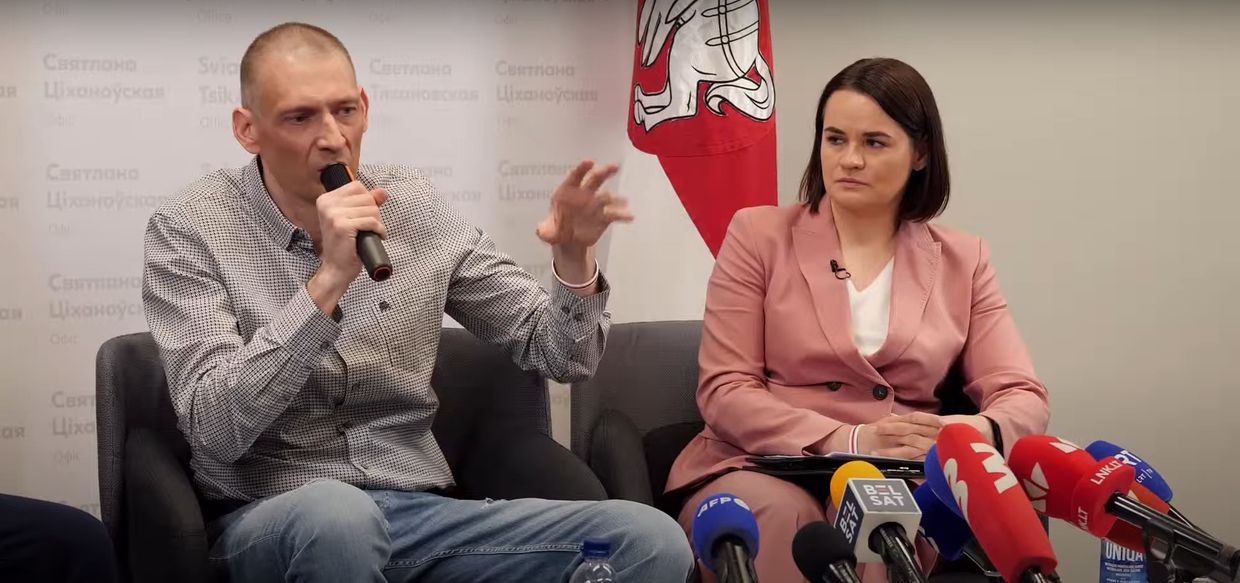

Siarhei Tsikhanouski, a Belarusian oppositionist recently released from prison, thanked the U.S. on June 22 for brokering his release and appealed to President Donald Trump to help free other political prisoners in Belarus.
"President Trump now has the power and opportunity to free all political prisoners in Belarus with a single word. And I ask him to do so, to say that word," Tsikhanouski said in Vilnius during his first press conference after the release.
Tsikhanouski, a popular blogger who planned to challenge Belarusian dictator Alexander Lukashenko in the 2020 presidential election, was arrested shortly before the vote and later sentenced to 18 years in prison on politically motivated charges.
The opposition leader and at least 13 other detainees were released from Belarusian prisons on June 21 after Lukashenko met U.S. Special Envoy for Ukraine, Keith Kellogg, in Minsk.
Speaking at the press conference alongside his wife and opposition leader, Sviatlana Tsikhanouskaya, Tsikhanouski affirmed that both of them "will continue to support Ukraine and call all of the perpetrators accountable."
Tsikhanouski confirmed that he used to do business both in Ukraine and in Russia but refuted allegations of pro-Russian sympathies, affirming his support for Ukraine and President Volodymyr Zelensky.
"I believe Crimea is Ukrainian. Zelensky has the hardest fate and a heavy load that no other president has. Zelensky is my hero," Tsikhanouski said.
He also said that Sviatlana Tsikhanouskaya remains the leader of the Belarusian opposition, and he will not challenge that.
Tsikhanouskaya stepped in as the opposition candidate in 2020 after her husband's arrest, but was forced into exile after Lukashenko declared victory in what was broadly seen as massive election fraud.
"Do you think that anybody who serves in prison automatically becomes a leader? We have 1,200 such leaders," Tsikhanouski added, referring to the number of political prisoners who remain in prison under Lukashenko's regime.
"Belarus can't be free until the Putin regime collapses. If it wasn't for (Russian President Vladimir) Putin, we would not be sitting here; it would have been over (after the Belarus' popular protests against Lukashenko) in 2020-2021," Tsikhanouski said.
Lukashenko, in power since 1994, is a close ally of Putin and has allowed Russia to use Belarusian territory for military operations against Ukraine.
The Belarusian dictator has maintained a tight grip over his country by electoral fraud, surveillance, and brutal crackdown on free press, civil society, and political opposition, prompting Western countries to impose sanctions on Belarus.
 The Kyiv IndependentTim Zadorozhnyy
The Kyiv IndependentTim Zadorozhnyy
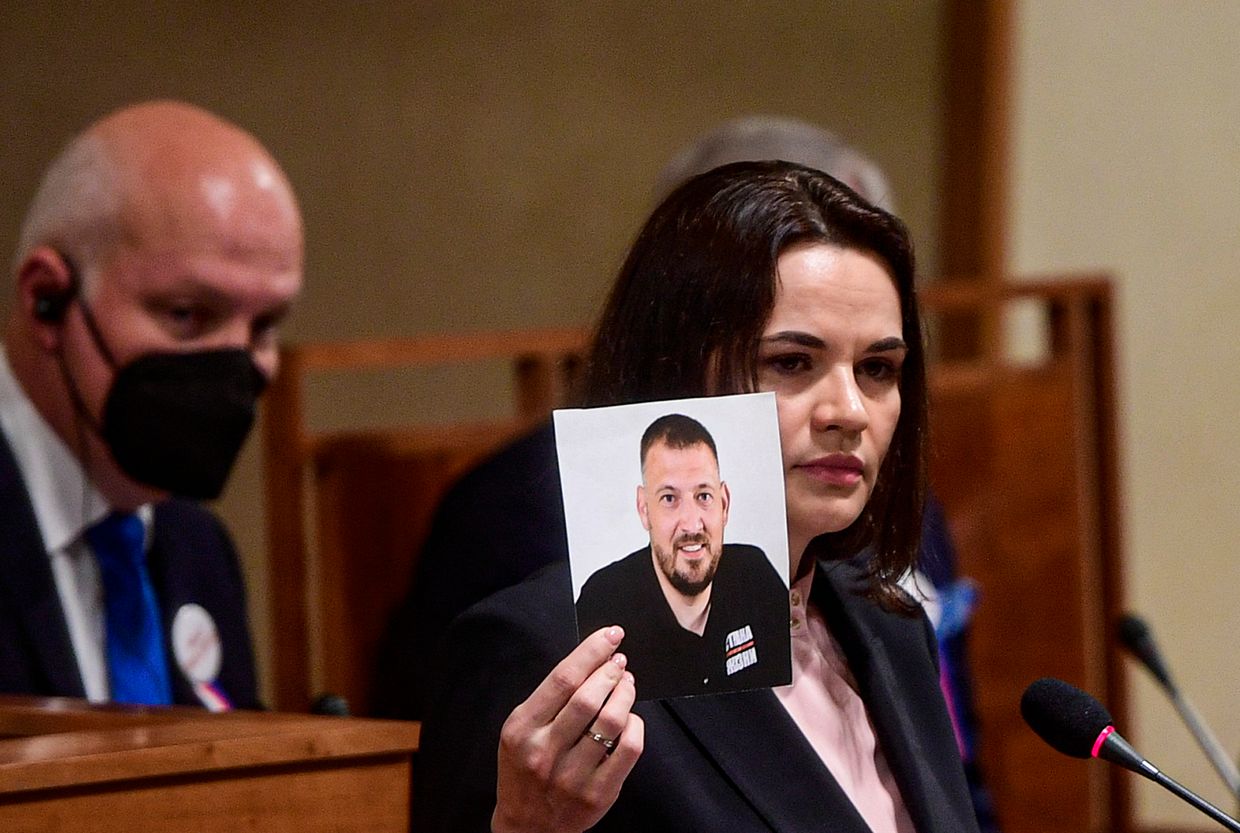

Editor's note: This item has been expanded with additional details.
Belarusian opposition leader and political prisoner Siarhei Tsikhanouski was released on June 21, shortly after dictator Alexander Lukashenko met in Minsk with U.S. President Donald Trump's special envoy for Ukraine, Keith Kellogg.
Tsikhanouski , a popular blogger who planned to challenge Lukashenko in the 2020 presidential election, was arrested shortly before the vote and later sentenced to 18 years in prison on politically motivated charges. Amnesty International recognized Tsikhanouski as a prisoner of conscience.
His wife, Sviatlana Tsikhanouskaya, stepped in and became the main opposition candidate against Lukashenko.
At least 13 political detainees, including prominent blogger Ihar Losik, were also released on June 21, Belarusian independent outlet Nasha Niva reported.
The other released prisoners include three Polish citizens, two Latvian citizens, one Estonian citizen, a Swedish citizen, a U.S. citizen, and two Japanese citizens, according to Lukashenko's press secretary.
In a post on social media, Tsikhanouskaya welcomed the news but highlighted that "1,150 political prisoners remain behind bars."
My husband Siarhei is free! It’s hard to describe the joy in my heart.
— Sviatlana Tsikhanouskaya (@Tsihanouskaya) June 21, 2025
Thank you, 🇺🇸 @POTUS, @SPE_Kellogg, @JohnPCoale, DAS Christopher W. Smith, @StateDept & our 🇪🇺 allies, for all your efforts.
We’re not done. 1150 political prisoners remain behind bars. All must be released. pic.twitter.com/MhngqBHFq3
Kellogg's deputy, John Coale, said the released political prisoners had been transferred to Vilnius and expressed gratitude to the Lithuanian government for facilitating their relocation.
"President Trump's strong leadership led to the release of 14 prisoners from Belarus today. Thanks to the Lithuanian government for its cooperation and assistance — they remain a true friend and ally," Coale wrote on X.
According to official results of the 2020 election, Lukashenko won with 80% of the vote, while Tsikhanouskaya received just 10%. Evidence indicates that the election was heavily rigged, and Tsikhanouskaya could have realistically won the vote.
As a result, hundreds of thousands took to the streets in Belarus in 2020 to demand a fair election. Thousands were arrested, and many were beaten and tortured. At least seven demonstrators were killed during the protests.
Minsk has faced repeated Western sanctions since the brutal crackdown on pro-democracy protests.
Lukashenko, in power since 1994, is a close ally of Russian President Vladimir Putin and has allowed Russia to use Belarusian territory for military operations against Ukraine.
"You have caused quite a stir in the world with your arrival," Lukashenko told Kellogg during their meeting at the Palace of Independence, according to state-run outlet Belta.
"But I wonder why. Can't we have a normal dialogue and talk about our affairs – about relations between Belarus and the United States of America?"
Kellogg is the highest-ranking U.S. official to visit Belarus in recent years, following former Secretary of State Mike Pompeo's 2020 trip under Trump's first term.
Since Russia's full-scale invasion of Ukraine in February 2022, Lukashenko's regime has played a key logistical role in supporting Moscow's campaign, offering its territory for troop deployments and weapons stockpiles.
 The Kyiv IndependentTim Zadorozhnyy
The Kyiv IndependentTim Zadorozhnyy


Russia handed over some bodies of its own soldiers to Ukraine under the guise of Ukrainian casualties during a recent exchange of the deceased, Interior Minister Ihor Klymenko announced on June 19.
"Yes, we have facts. We have established the names of these soldiers and officers who are unwanted by their homeland," Klymenko wrote on Telegram.
The discovery was made after the handover of remains under an agreement reached during the June 2 talks in Istanbul. In total, Ukraine received 6,057 bodies of its fallen soldiers as part of the phased exchange. Russia, according to Kremlin aide and negotiator Vladimir Medinsky, took back 78.
One of the bodies returned to Ukraine, labeled No. 192/25, was dressed in a Russian military uniform and carried a Russian passport issued to Alexander Viktorovich Bugaev, born in 1974.
Alongside the passport, officials found a military ID indicating Bugaev had served in the 1st Battalion of the 39th Separate Guards Motorized Rifle Brigade.
According to Klymenko, Bugaev went missing during heavy fighting near Novomykhailivka in Donetsk Oblast in March 2025. His family had been searching for him for months. Klymenko said Russia had located Bugaev's body but chose to "dump" it among the Ukrainian dead.
"This is yet another proof of how Russia treats its people with contempt, throwing their bodies onto the bodies of Ukrainian soldiers," Klymenko said.
"This shows how little human life means to Russia. Or maybe it's just a way to avoid paying compensation to the families. But they will have to pay anyway: we are returning these bodies."
The official has not mentioned the total number of Russian soldiers' bodies given to Ukraine.
The June 2 negotiations in Istanbul resulted in the most expansive prisoner and body exchange agreement of the full-scale war, although no ceasefire was reached.
Russia accused Kyiv on June 7 of rejecting a proposed body return, publishing footage allegedly showing Ukrainian corpses stored in refrigeration units. Ukraine dismissed the claims, saying the footage was filmed on Russian territory, not at a designated handover site.
Kyiv has consistently called for an "all-for-all" exchange of prisoners of war, but Moscow has so far refused to agree to a comprehensive swap.
 The Kyiv IndependentYuliia Taradiuk
The Kyiv IndependentYuliia Taradiuk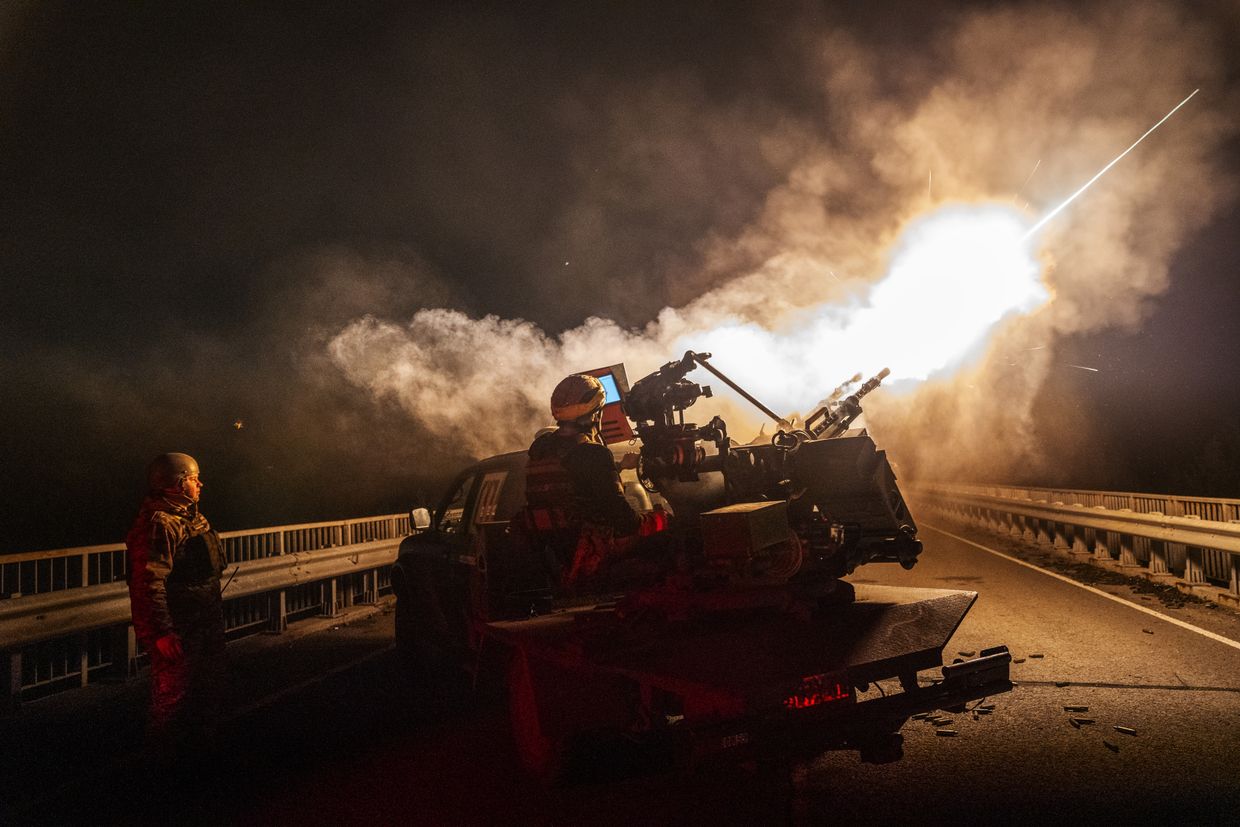
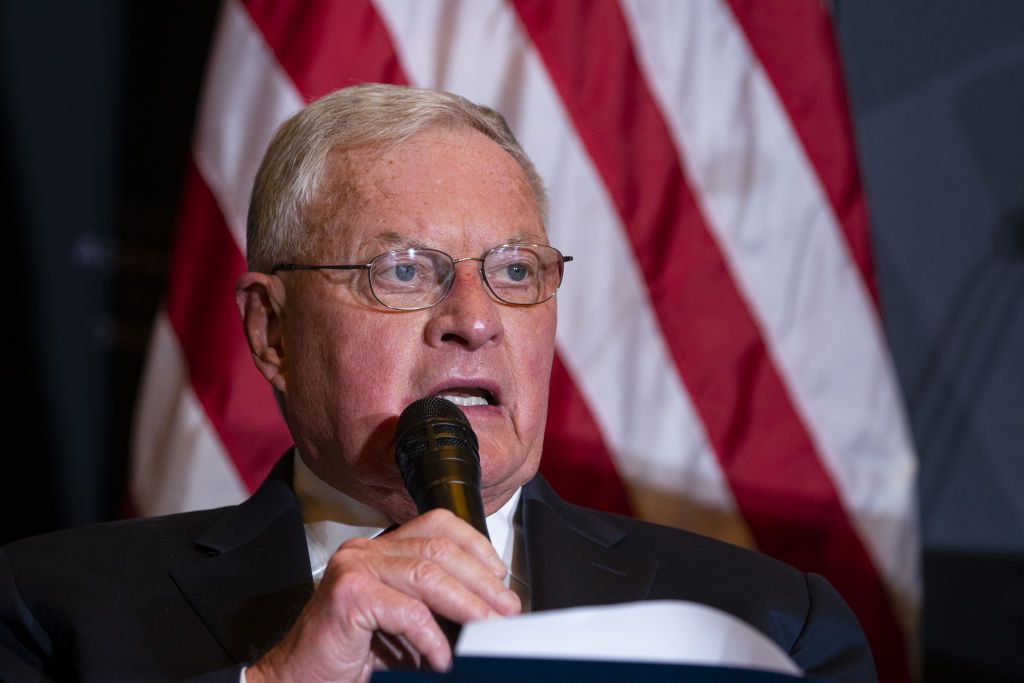

U.S. Special Envoy for Ukraine Keith Kellogg will meet Belarusian President Alexander Lukashenko in the coming days, Reuters reported on June 17, citing four sources familiar with the matter.
Kellogg will meet Lukashenko in a visit to Belarus as peace talks to bring an end to Russia's war against Ukraine remain inconclusive, Reuters reported.
In February, U.S. Deputy Assistant State Secretary Christopher W. Smith visited Belarus alongside two other U.S. officials to conduct a prisoner swap in a similar unannounced visit.
Lukashenko has been in power since 1994 and has been accused of staging fraudulent elections in Belarus. The leader declared a seventh consecutive presidential election victory in January.
Kellogg has given the impression that the meeting could help reinitiate largely unsuccessful peace talks between Ukraine and Russia, two sources told Reuters.
Lukashenko is seen as a key ally of Russian President Vladimir Putin as Russia faces isolation in response to its full-scale war against Ukraine.
The White House has discussed ways to weaken Russia's influence on Minsk and bring Belarus closer to the United States, one of the sources said.
On Feb. 12, Smith drove to Belarus from Lithuania following a phone call with Lukashenko. The small U.S. delegation visited a border town where three political prisoners were transferred, including one U.S. citizen and two Belarusian citizens, the New York Times reported.
Lukashenko assured he was ready to decrease repression in Belarus, Smith said, adding that the U.S. wants Belarus to be less reliant on Russia.
Belarus has faced Western sanctions following a presidential election in 2020 that international observers condemned as fraudulent. The sham election garnered mass protests that rejected the results.
Minsk refused to invite a mission from the Organization for Security and Cooperation in Europe (OSCE) to observe the country's Jan. 26 presidential election.
Belarus further isolated itself from the West as it supports Russia in its ongoing war against Ukraine.
 The Kyiv IndependentKateryna Denisova
The Kyiv IndependentKateryna Denisova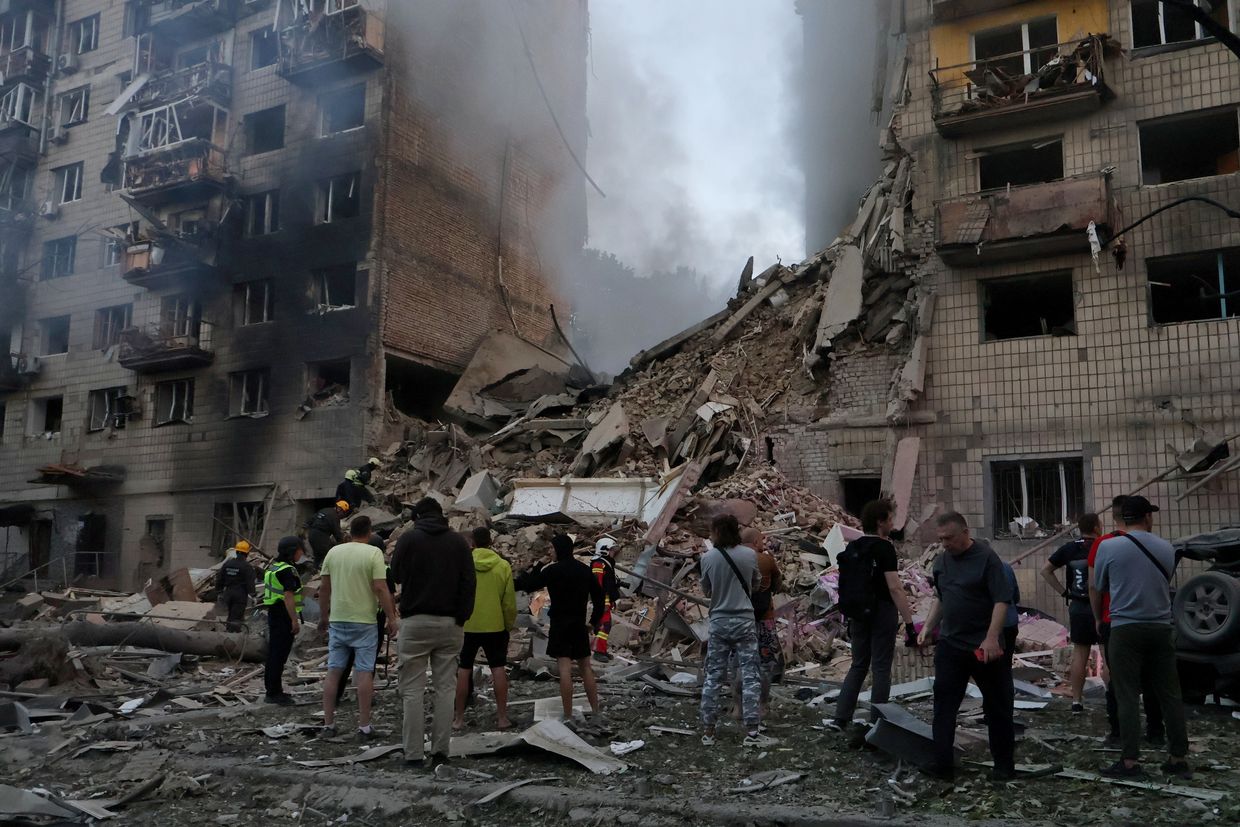
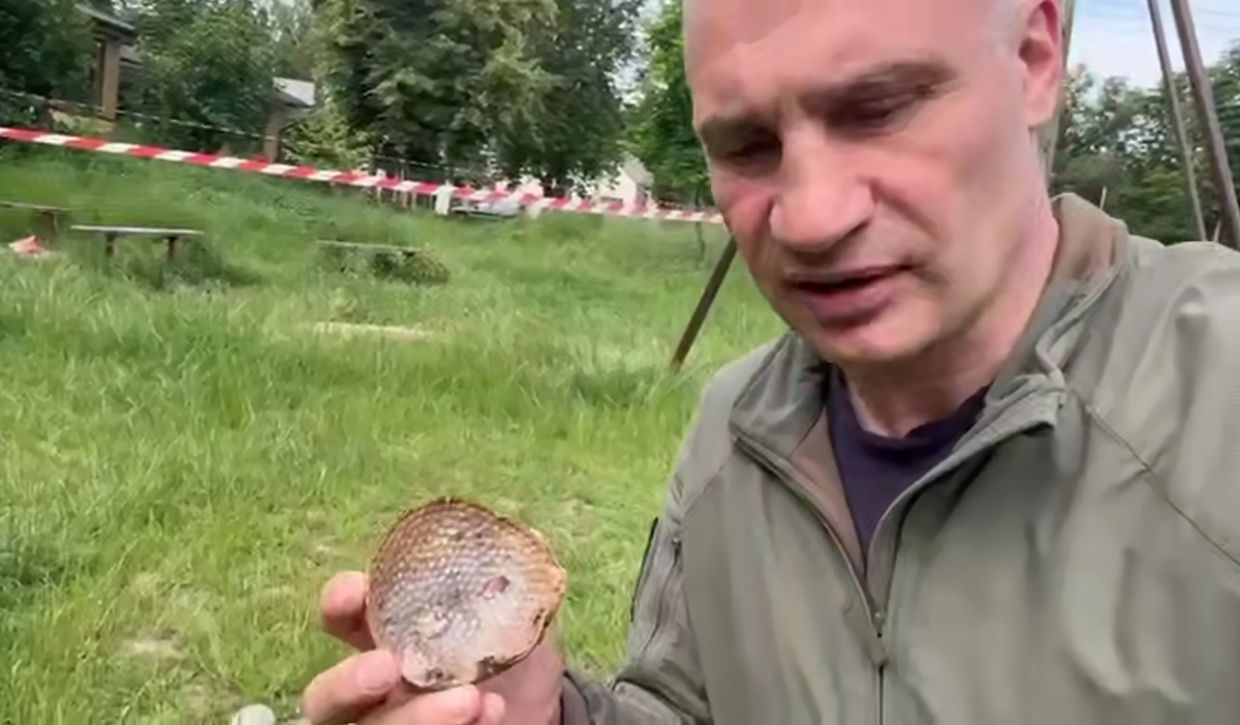

Emergency services in Kyiv have recovered fragments of cluster munitions following the overnight Russian missile and drone attack on June 17, Mayor Vitali Klitschko reported, calling it further evidence of Russia's "genocide" against Ukrainians.
"In the capital's Nyvky neighborhood, emergency workers are now finding these kinds of cluster munition parts," Klitschko said in a statement shared on social media. "Another clear sign of the genocide Russia is committing against Ukrainians."
Cluster munitions are banned under international law by more than 100 countries due to their indiscriminate nature and the long-term threat they pose to civilians, especially when unexploded submunitions remain hidden in residential areas.
While Russia and Ukraine are not signatories to the Convention on Cluster Munitions, international humanitarian organizations have repeatedly condemned the use of such weapons in populated areas. Ukraine uses cluster munitions on the battlefield against Russian forces.
The mayor's comments came hours after one of the largest and deadliest attacks on the Ukrainian capital in months, in which at least 15 people were killed and nearly 100 injured. The Russian strike, which lasted nearly nine hours, included waves of kamikaze drones, ballistic missiles, and what authorities now confirm were banned explosive parts.
President Volodymyr Zelensky called the assault "one of the most horrifying attacks on Kyiv," saying more than 440 drones and 32 missiles were launched across Ukraine overnight.
"Such attacks are pure terrorism," he said in a statement on social media. "And the whole world, the U.S., and Europe must finally respond as civilized societies respond to terrorists."
Zelensky confirmed that damage had been reported in eight districts of Kyiv, with emergency workers still searching for survivors beneath the rubble of a destroyed apartment block.
He added that strikes also hit Odesa, Zaporizhzhia, Chernihiv, Zhytomyr, Kirovohrad, Mykolaiv, and Kyiv regions. "Fifteen people are confirmed dead. My condolences to their families and loved ones," Zelensky said.
Foreign Minister Andrii Sybiha also condemned the attack, calling it a "massive and brutal strike" timed deliberately to coincide with the G7 summit, which is taking place in Canada on June 16-17.
 The Kyiv IndependentLucy Pakhnyuk
The Kyiv IndependentLucy Pakhnyuk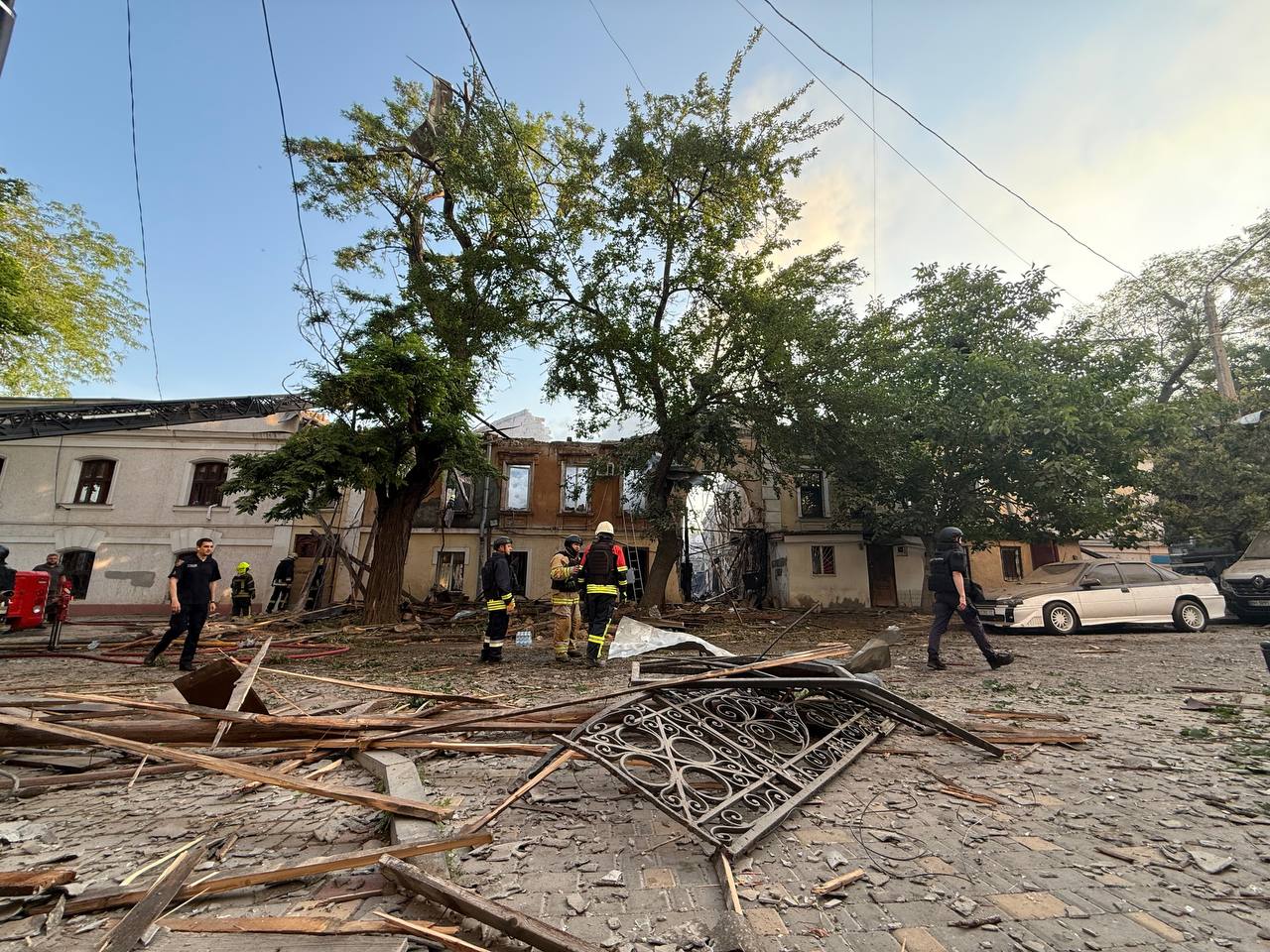
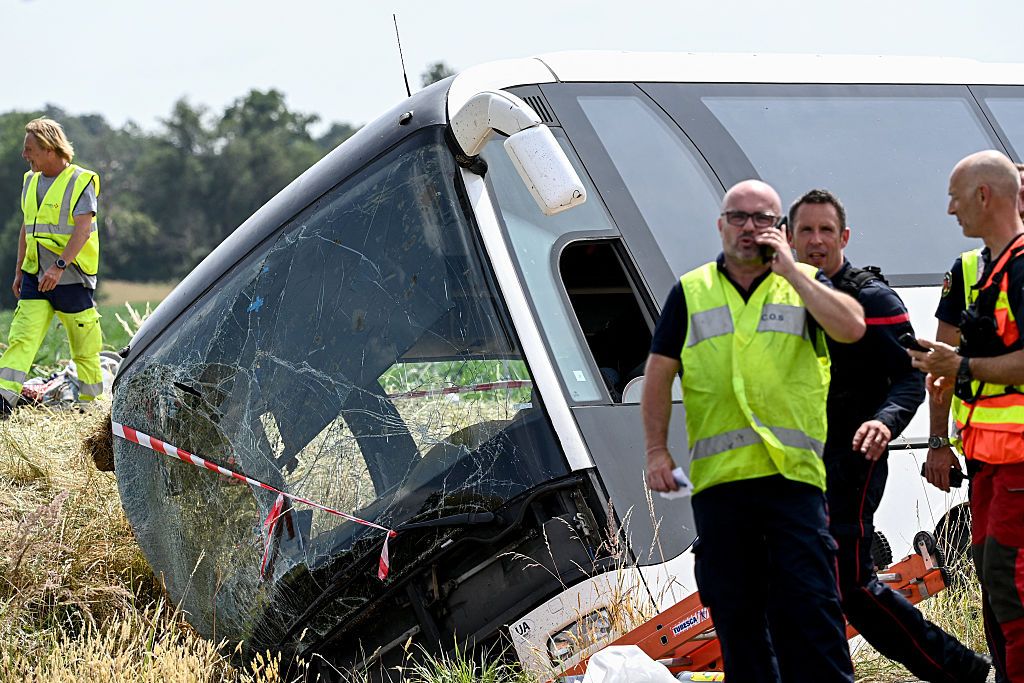

Three Ukrainian nationals were killed in a bus accident in France on June 13, President Volodymyr Zelensky confirmed in a statement on Telegram.
"Terrible news about the tragic bus accident in France," Zelensky wrote.
The accident occurred in the morning of June 13, near the Sarthe department of France. The bus was reportedly carrying Ukrainian nationals, including adults and children, who were returning from an educational exchange.
While en route to Paris, the bus lost control and flipped into a ditch.
Four adults were killed in total – three of whom were Ukrainian nationals. French media reported that nine people sustained serious injuries, while an additional 18 suffered minor injuries.
Zelensky added that Ukraine's Foreign Ministry promptly sent a team of diplomats and consuls, led by the ambassador to France, to assist survivors and support the victims’ families. The team is coordinating with French authorities and emergency services at the scene.
Foreign Minister Andrii Sybiha and Interior Minister Ihor Klymenko are providing regular updates on the victims' conditions and emerging details regarding the accident.
Zelensky thanked the French authorities, noting that "more than 50 emergency teams were deployed" in what he called "a true expression of French solidarity."
He also expressed his "condolences to all the families of the victims" and wished for a "speedy recovery of the injured children."
 The Kyiv IndependentMartin Fornusek
The Kyiv IndependentMartin Fornusek